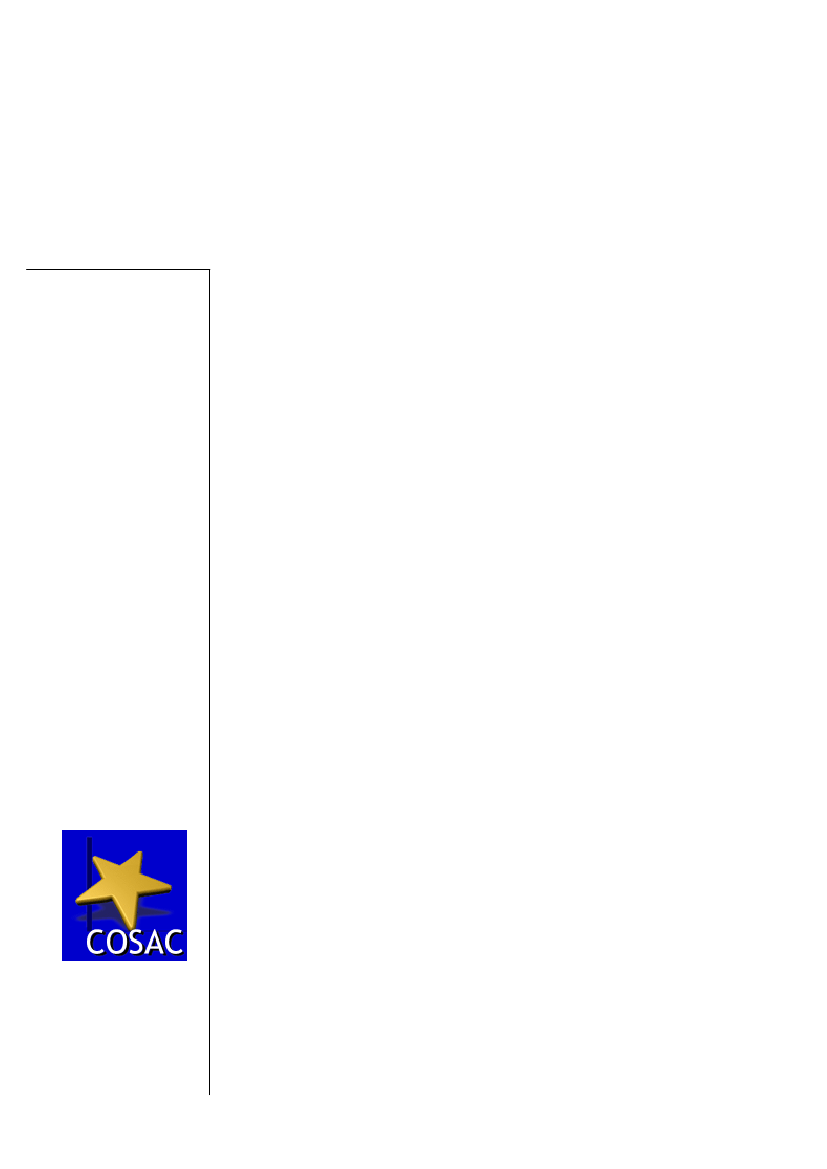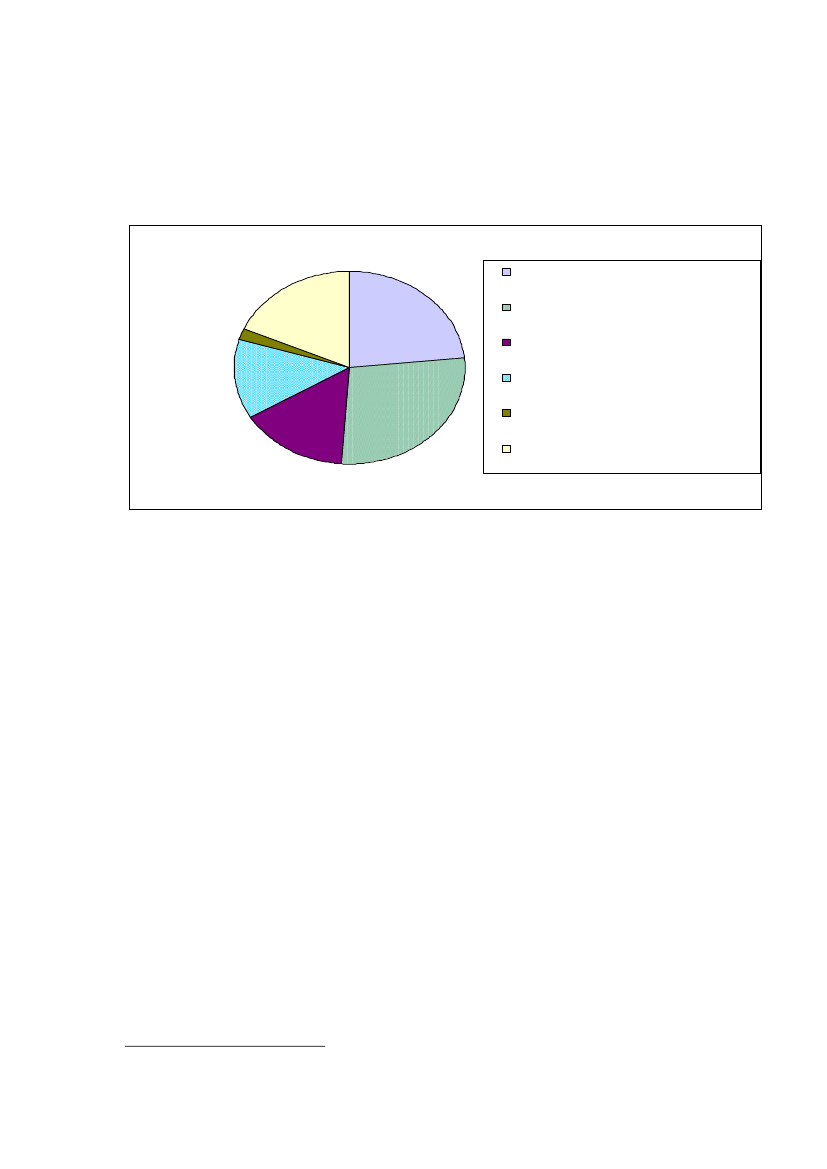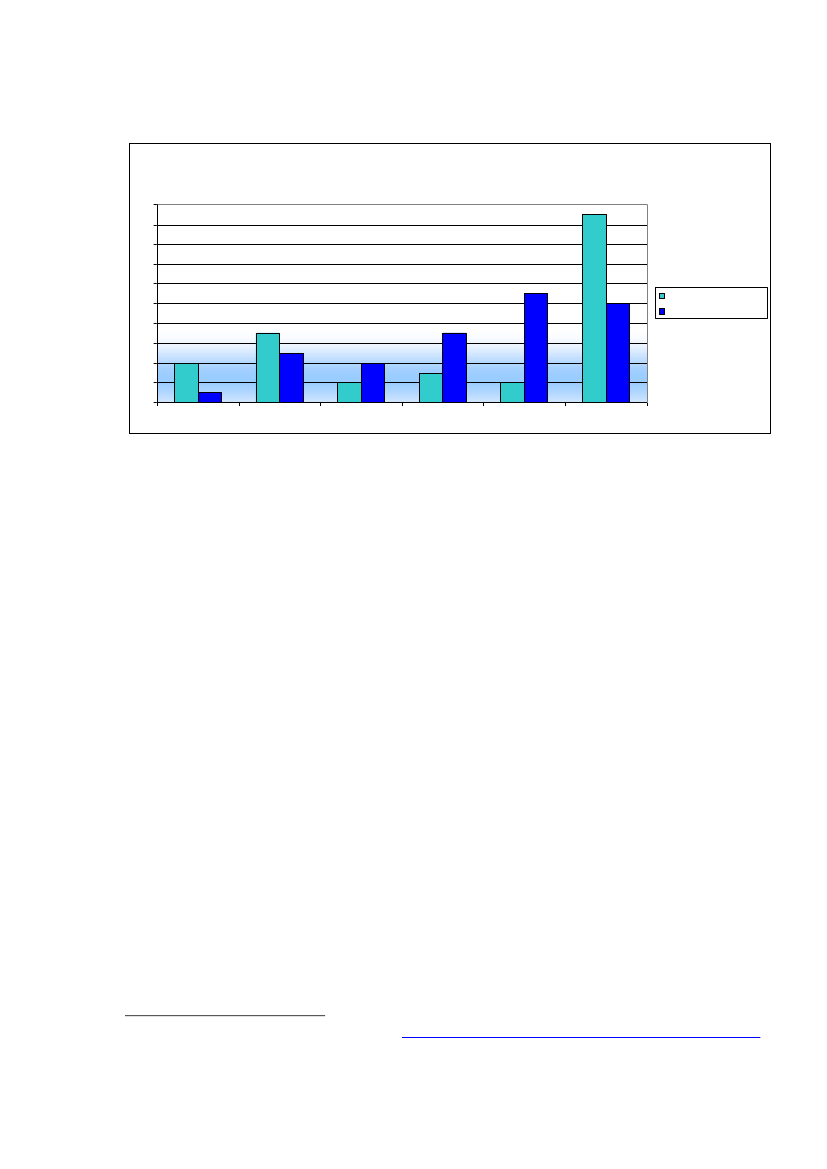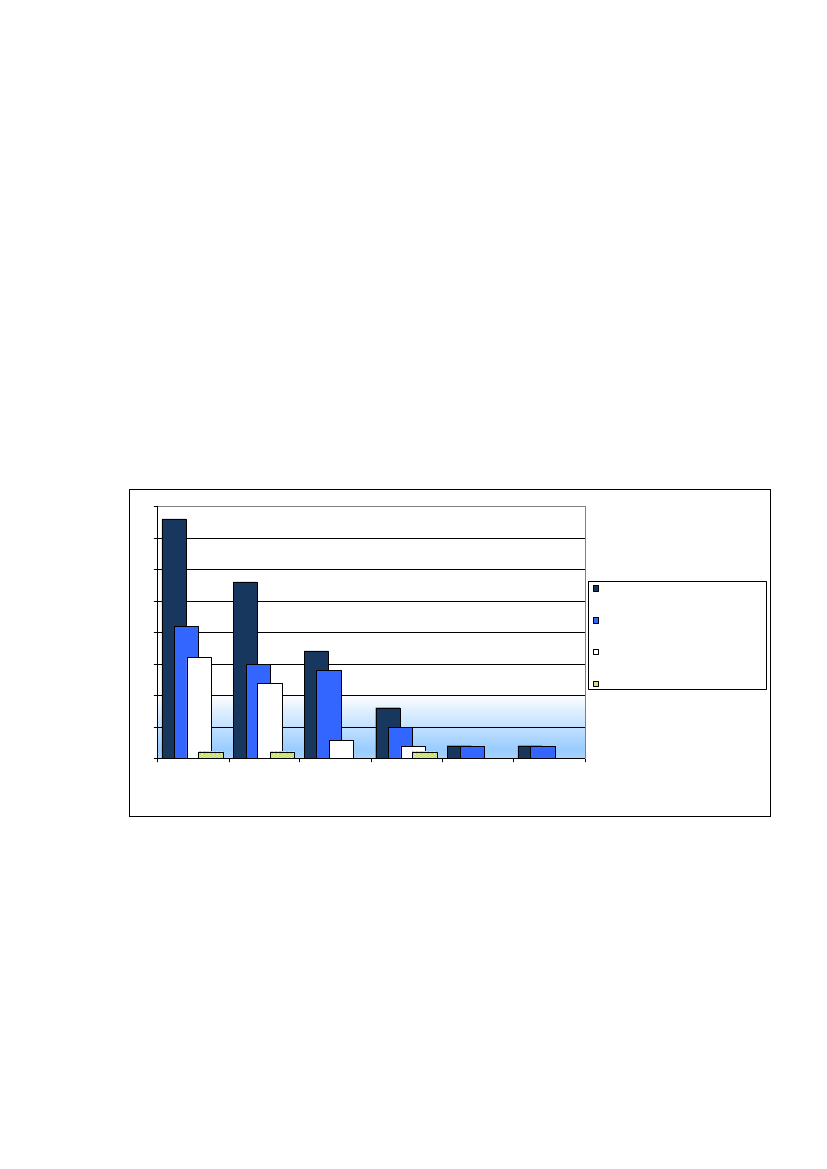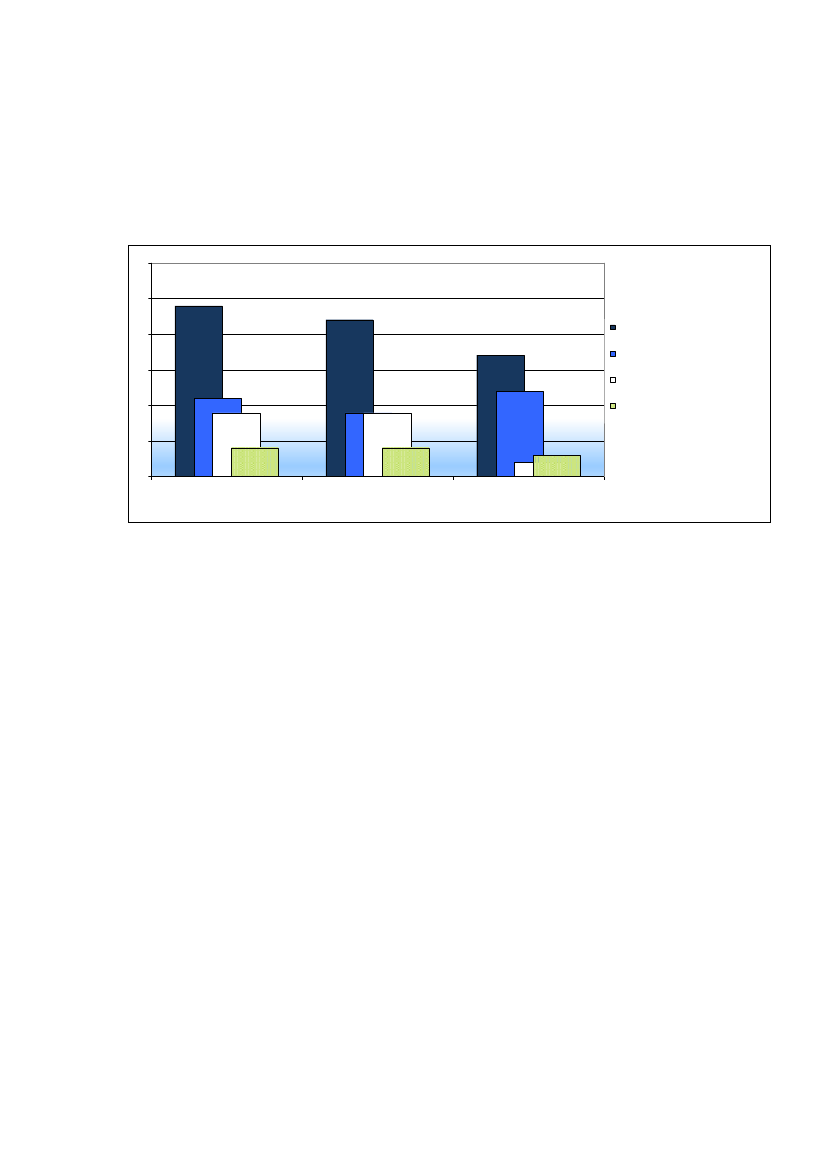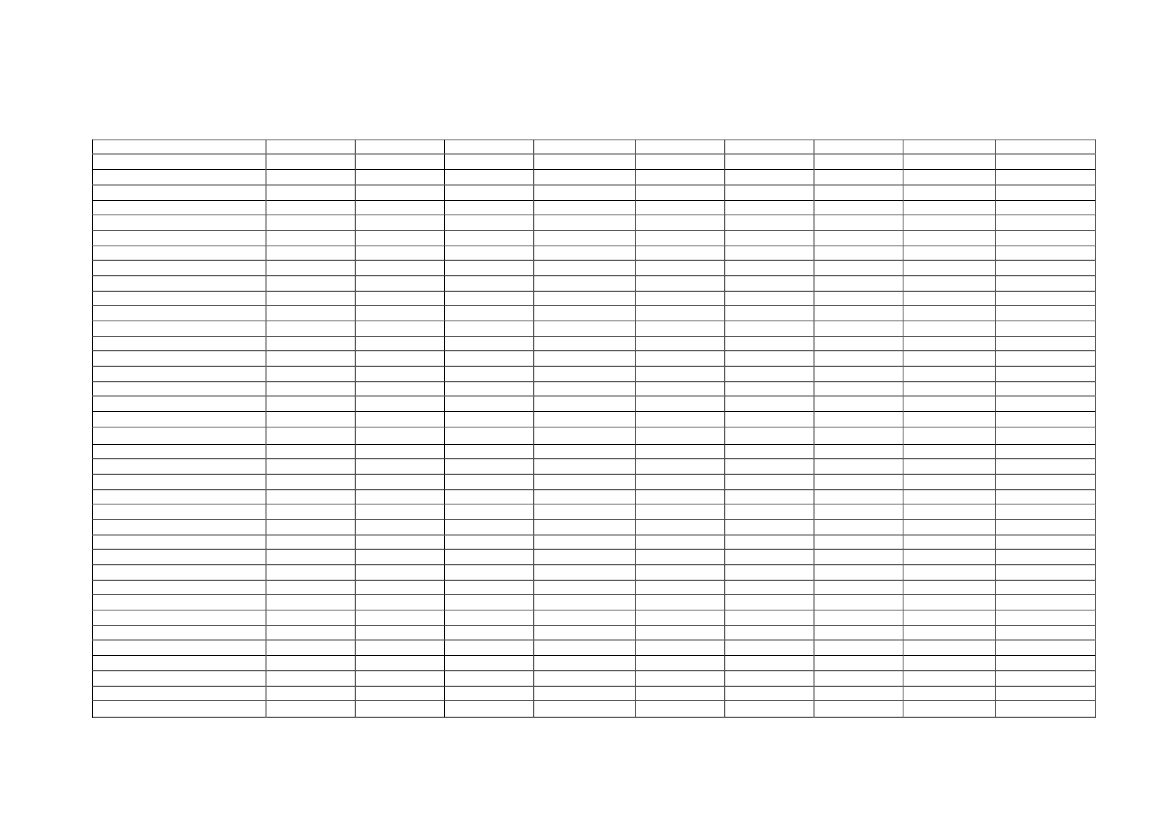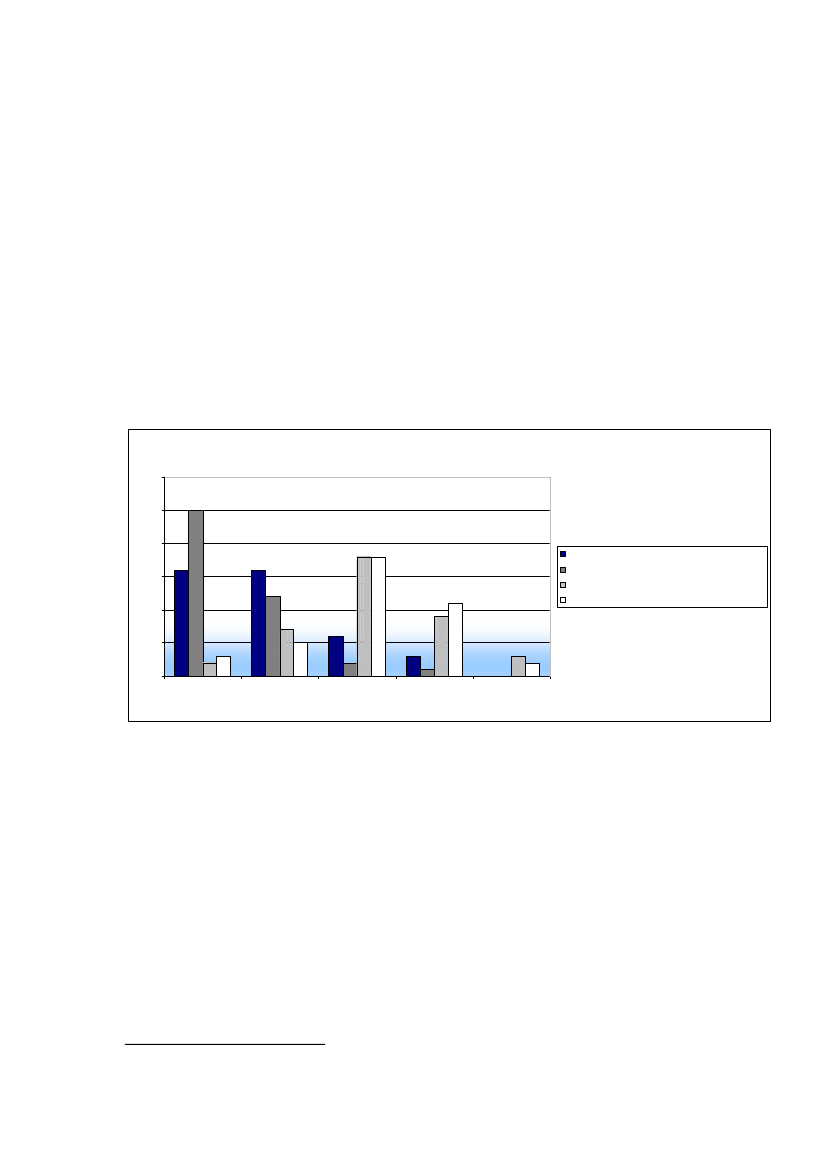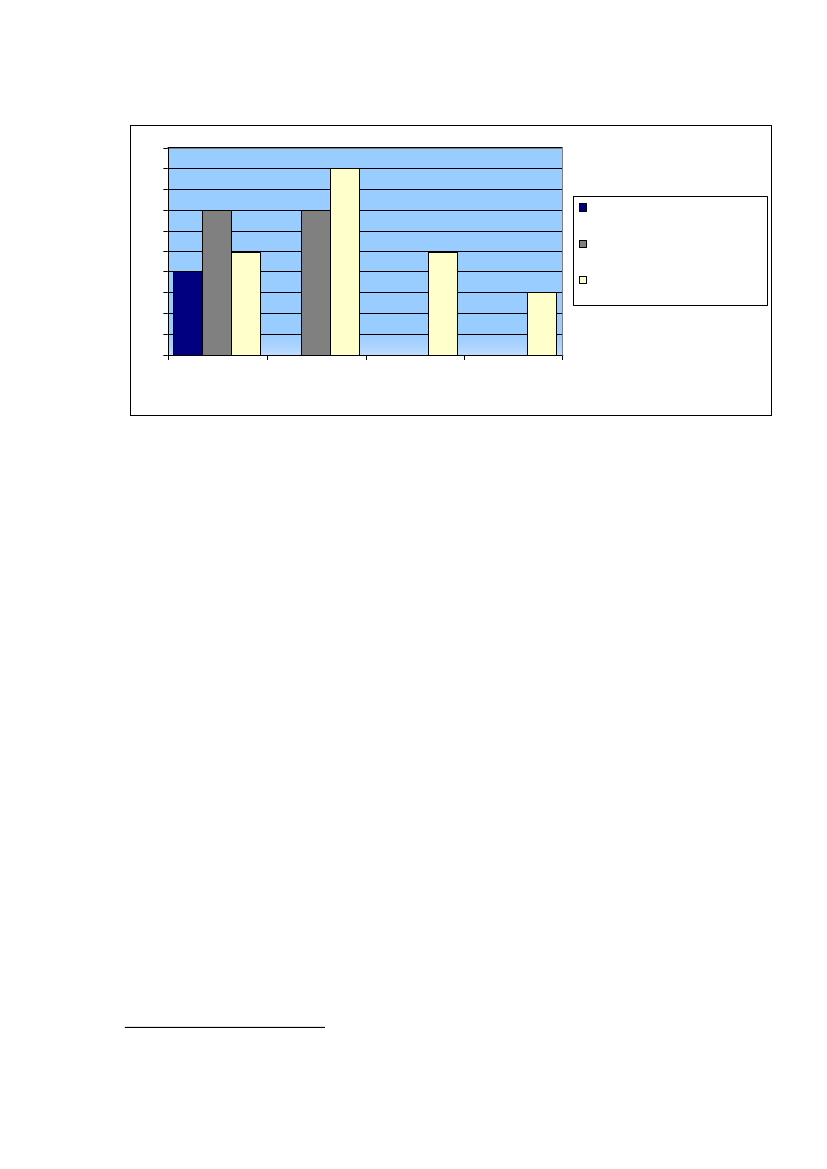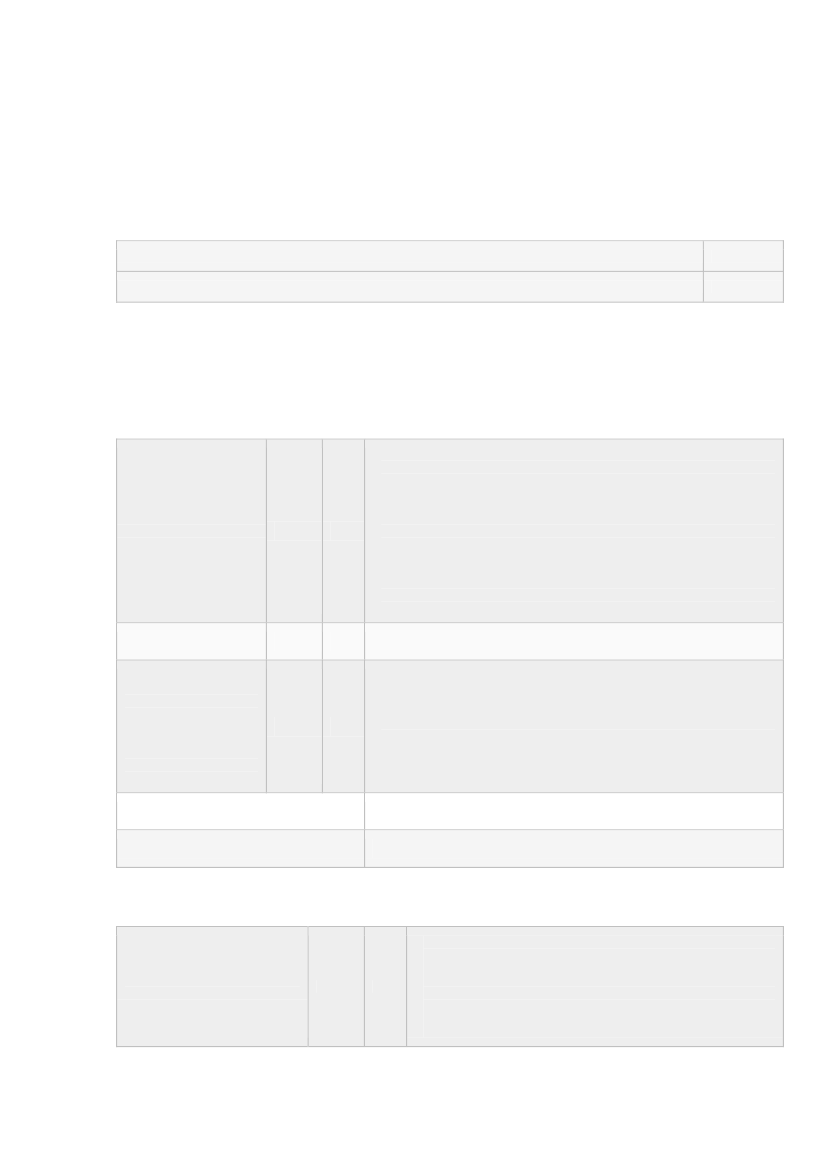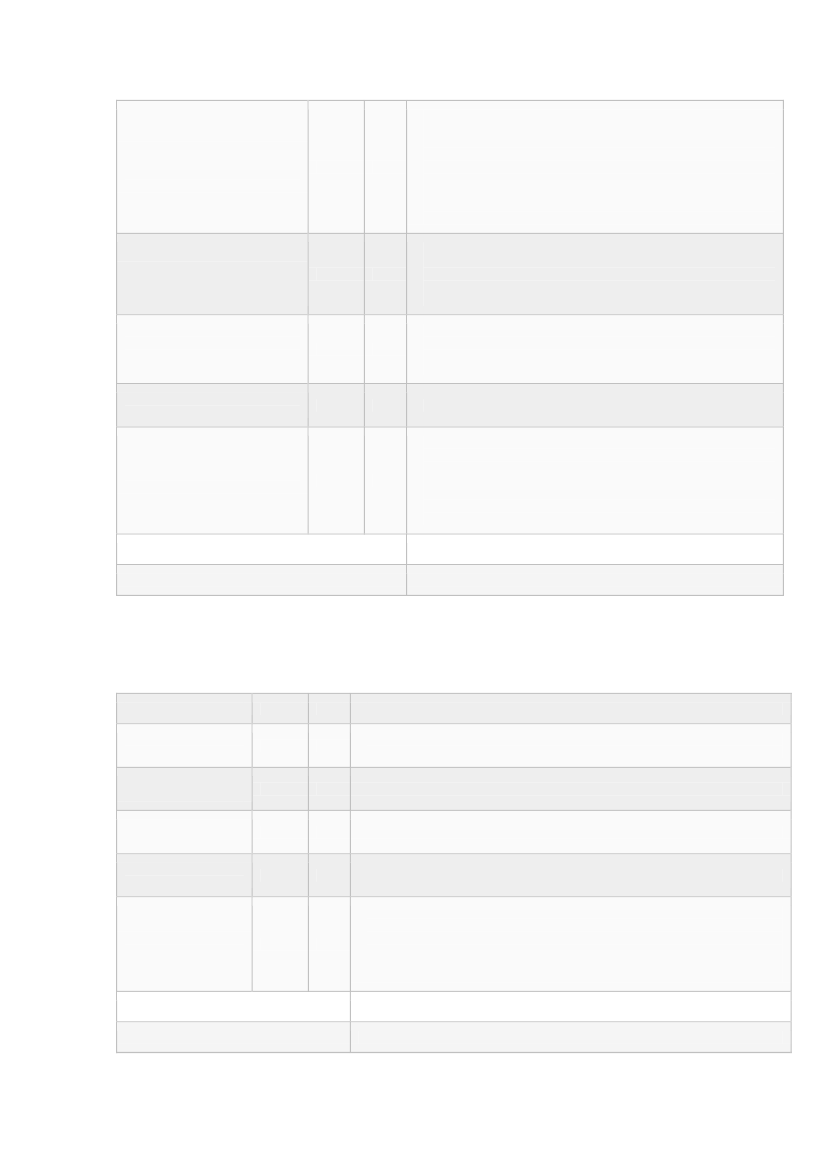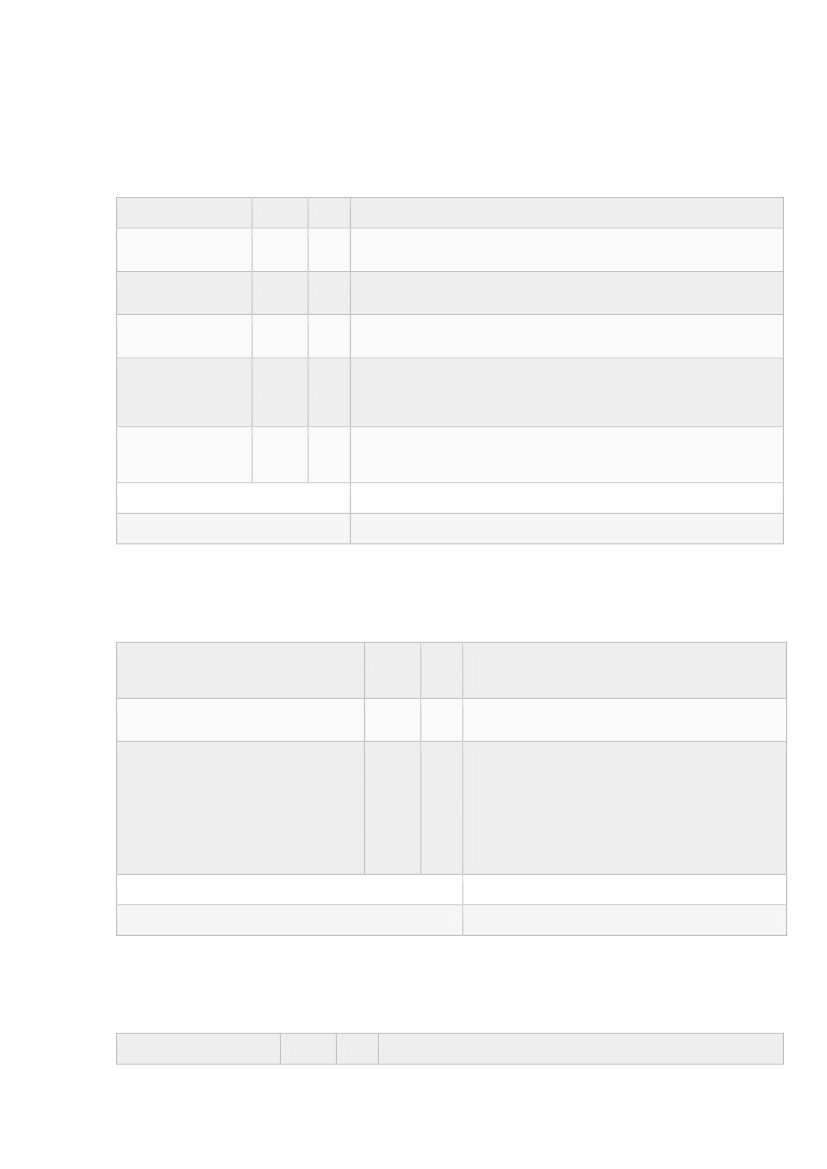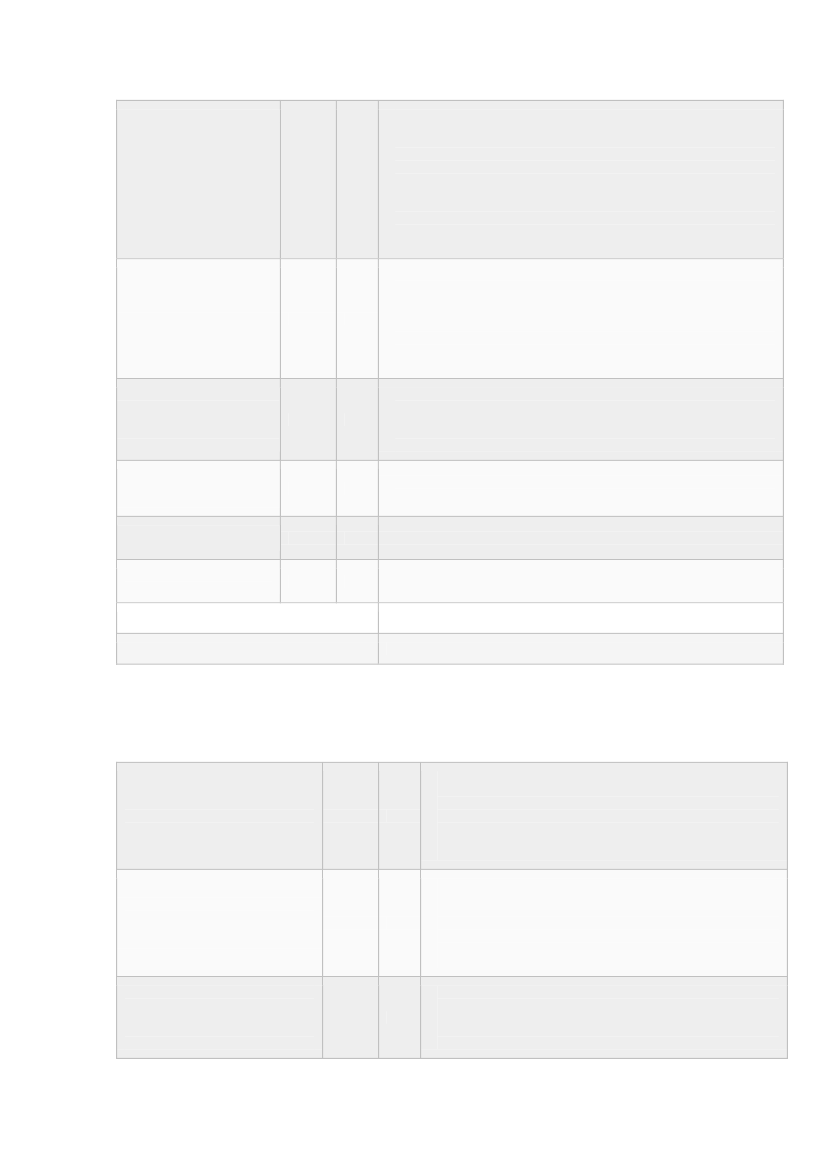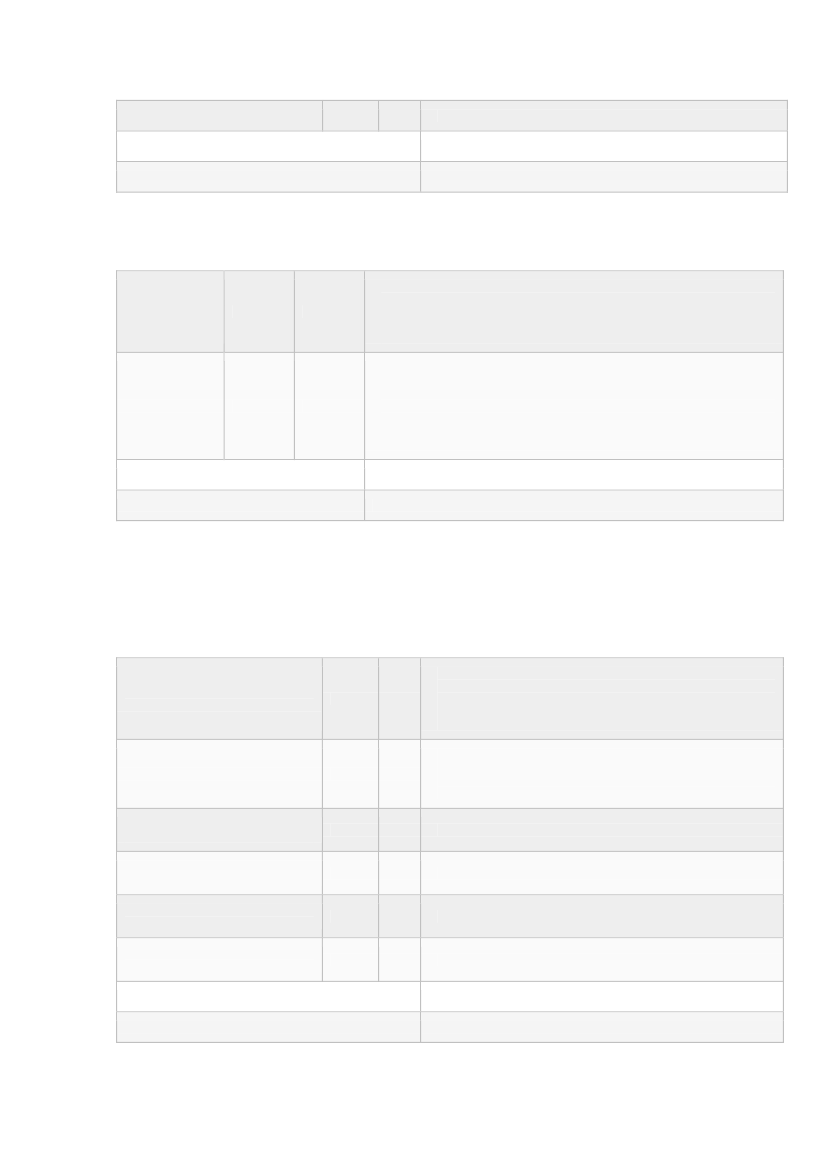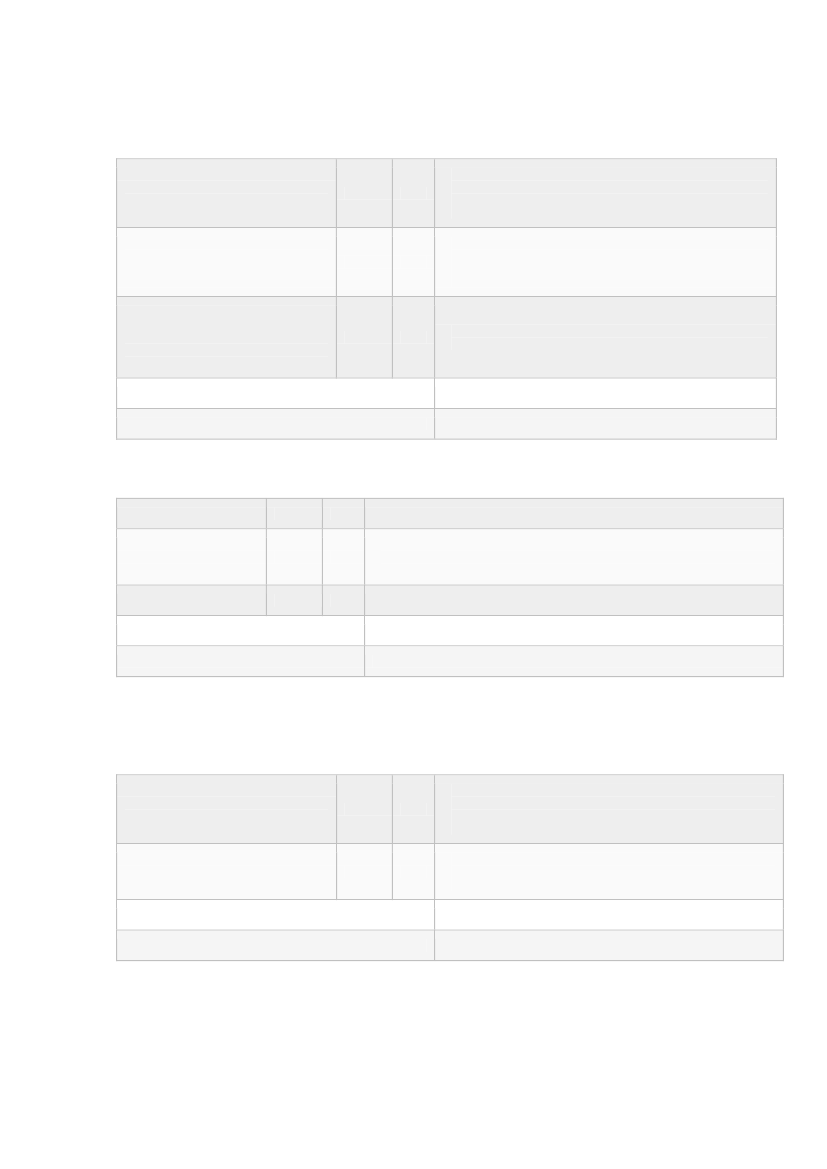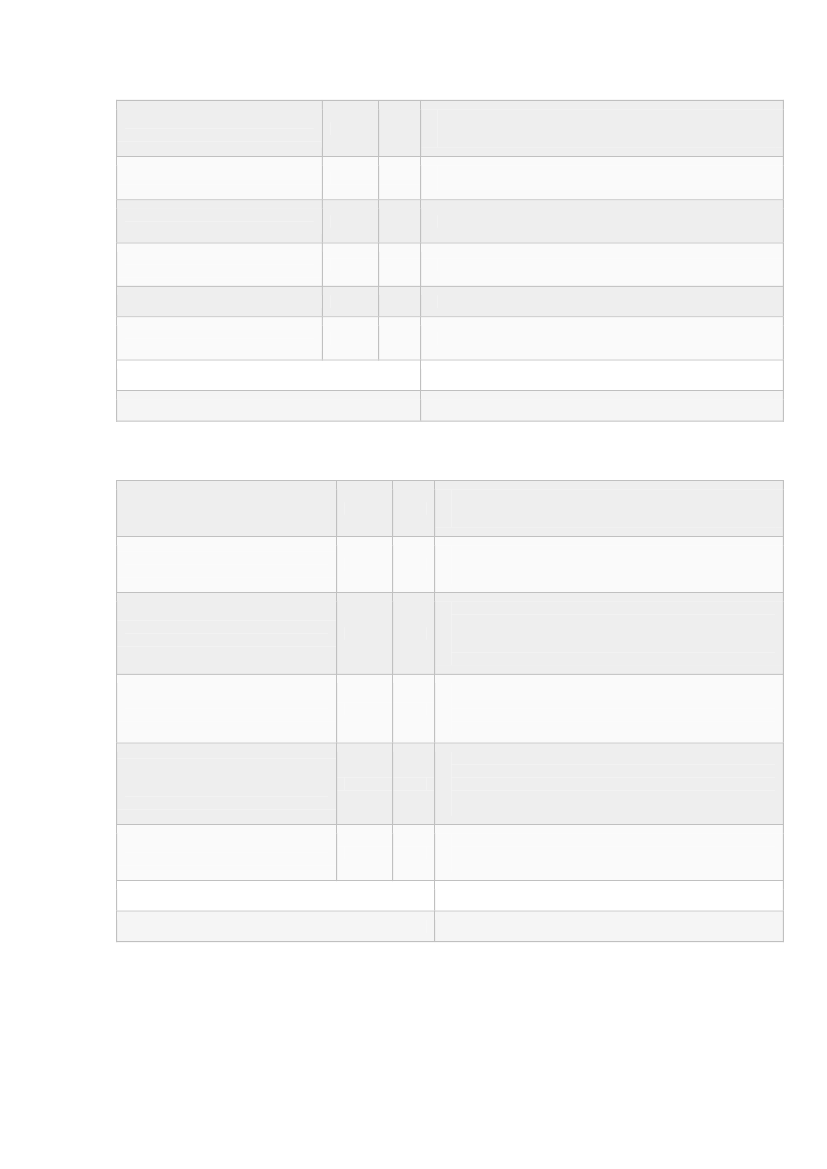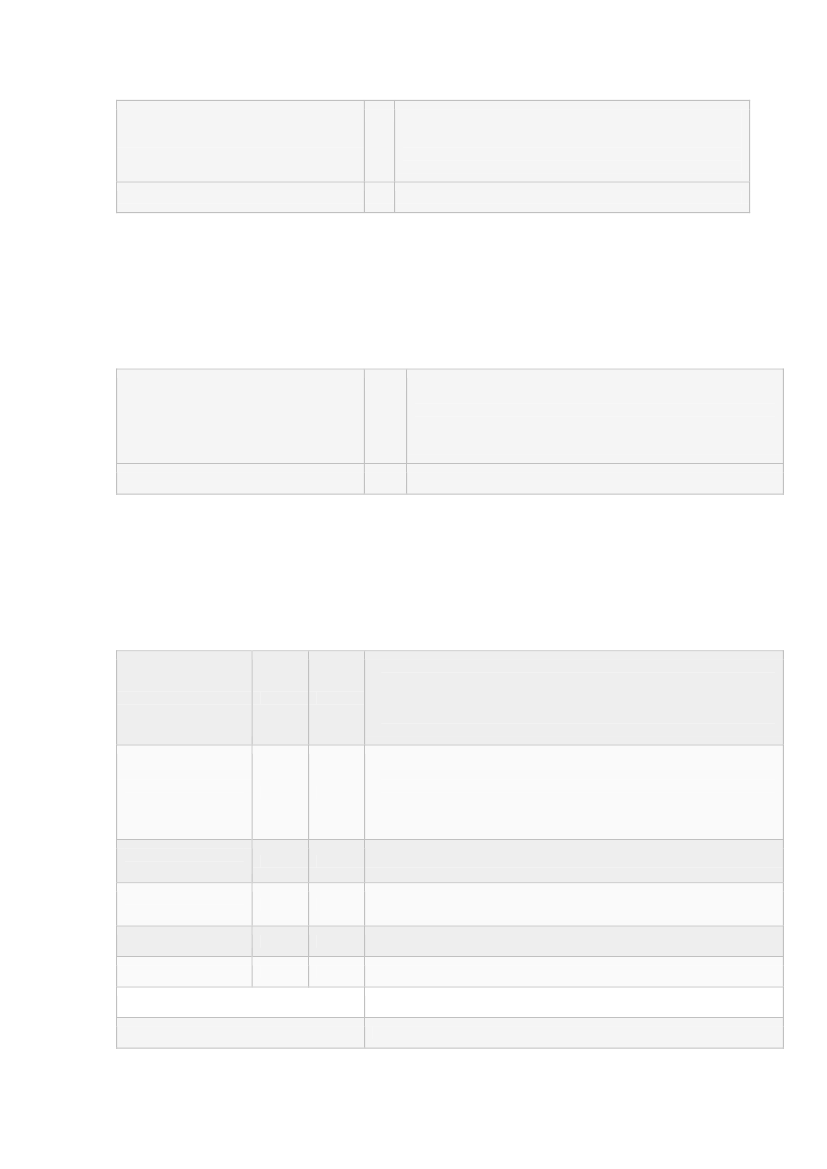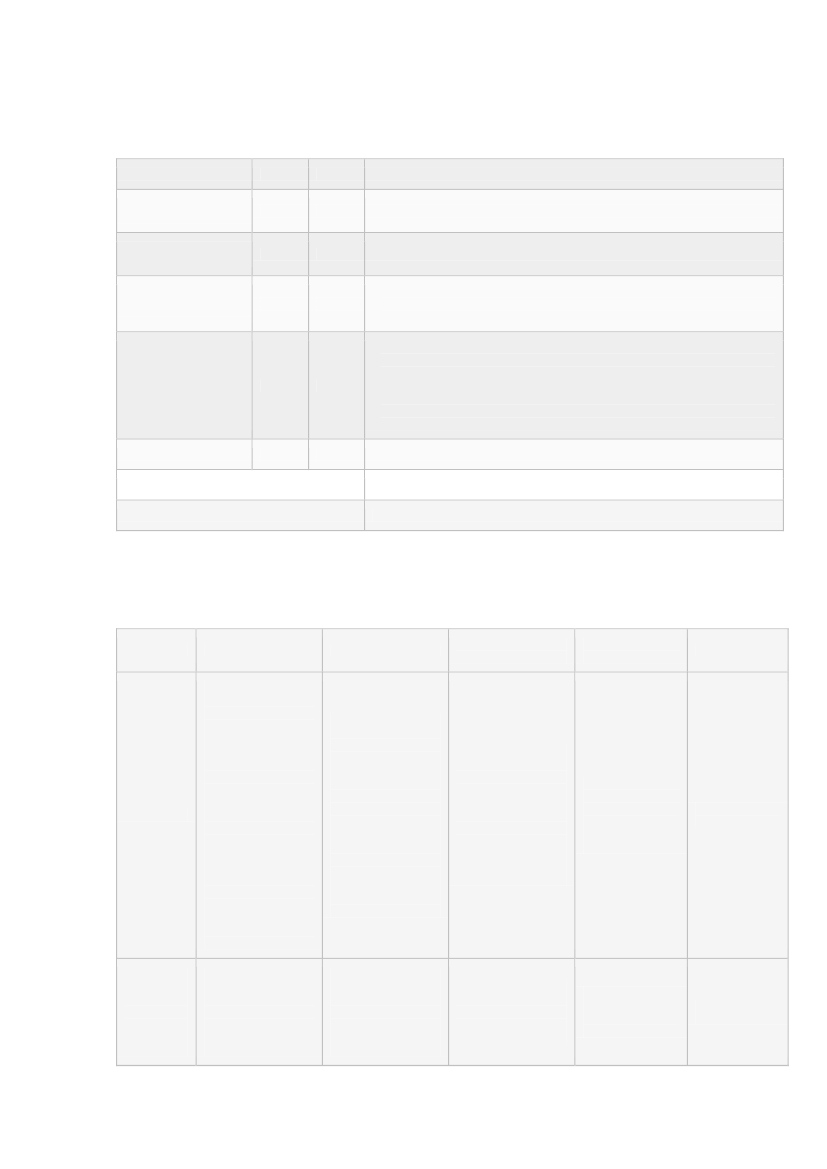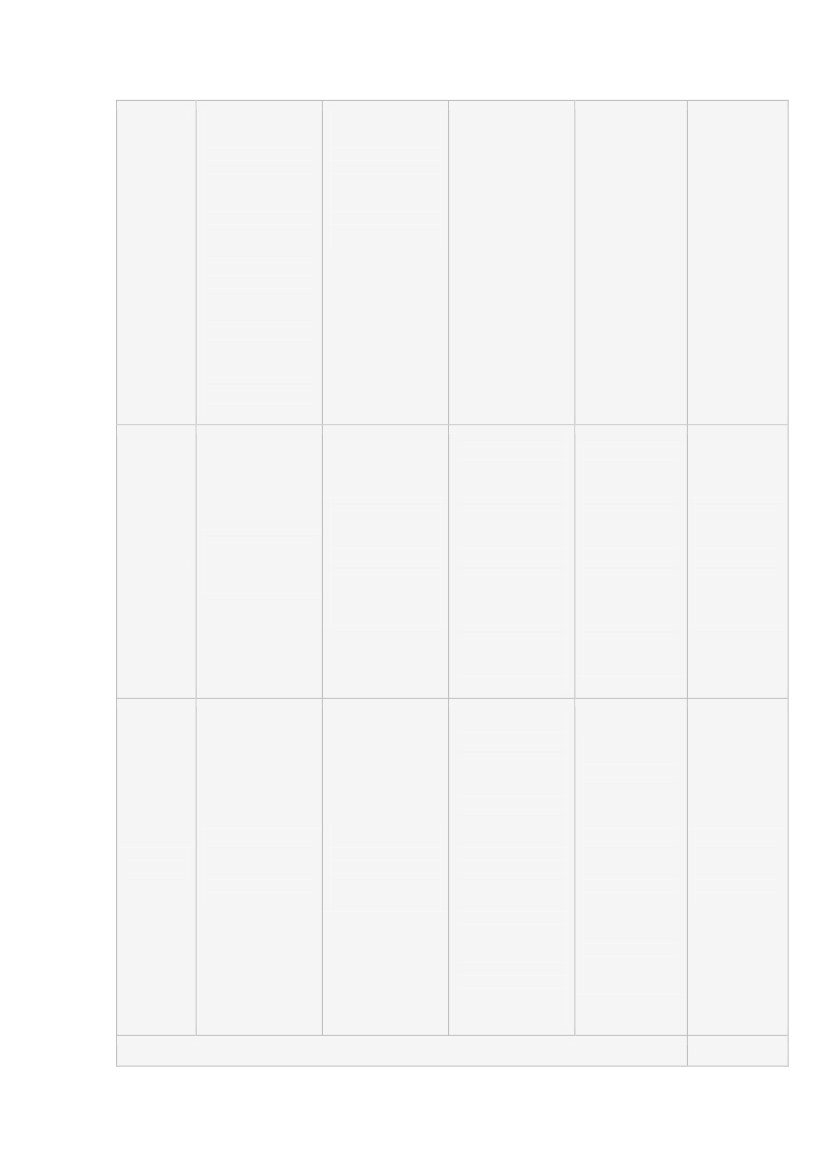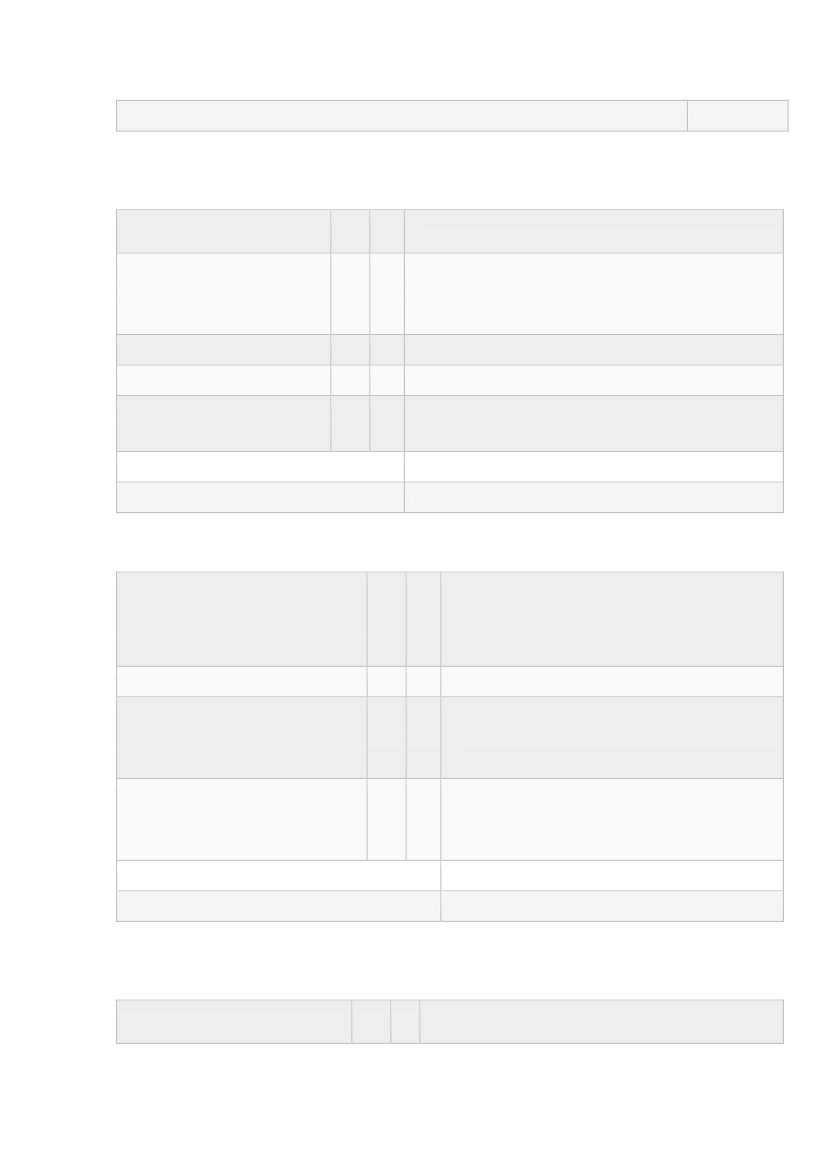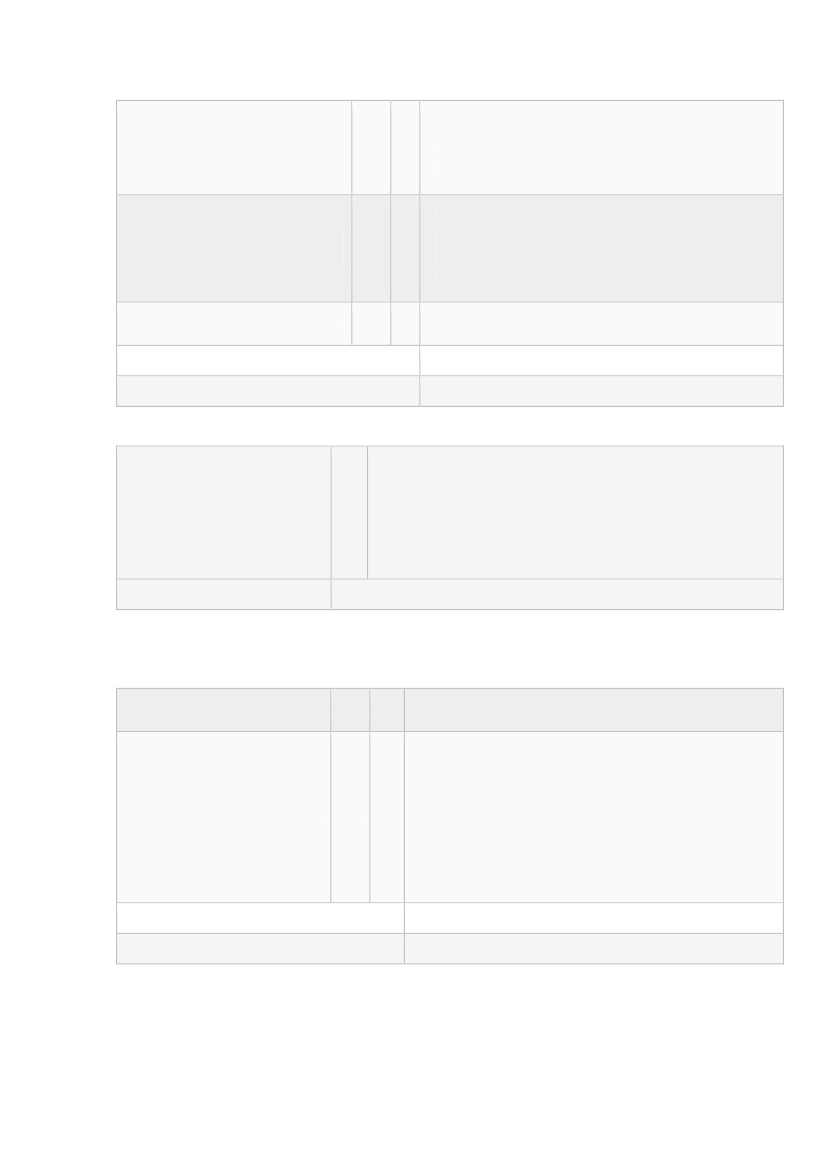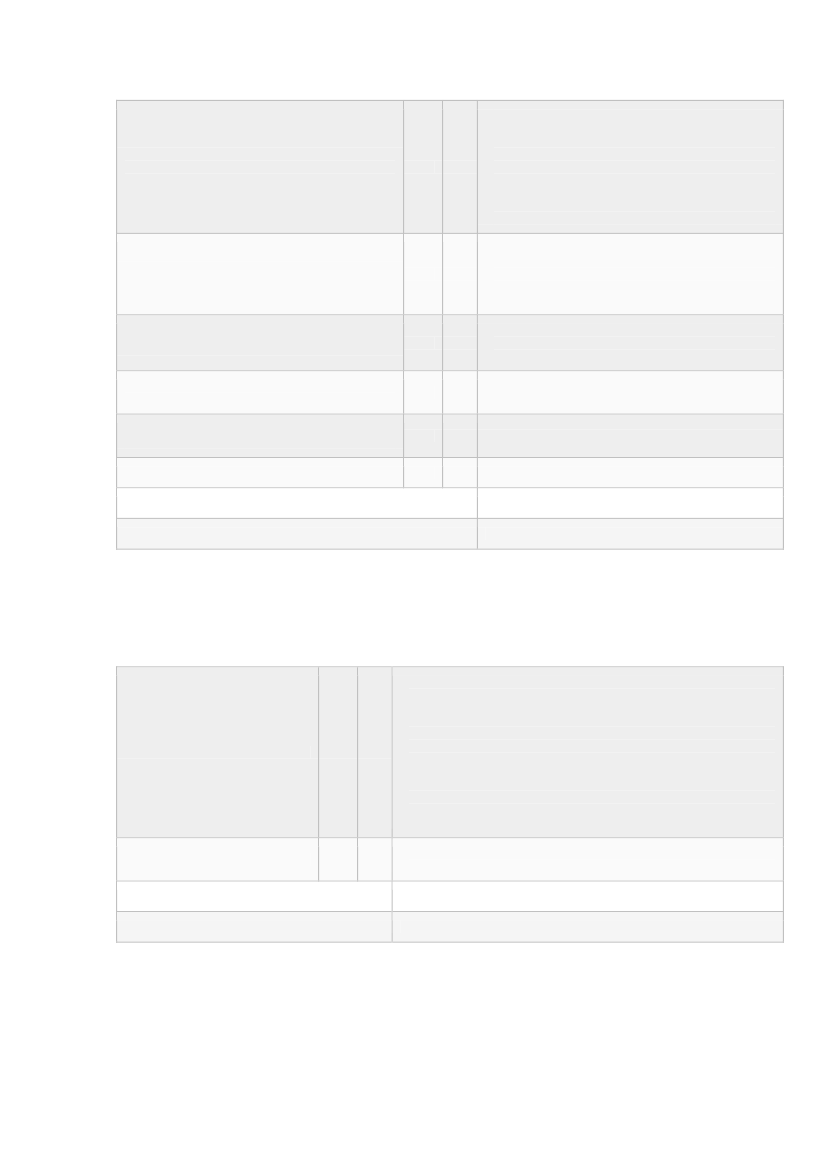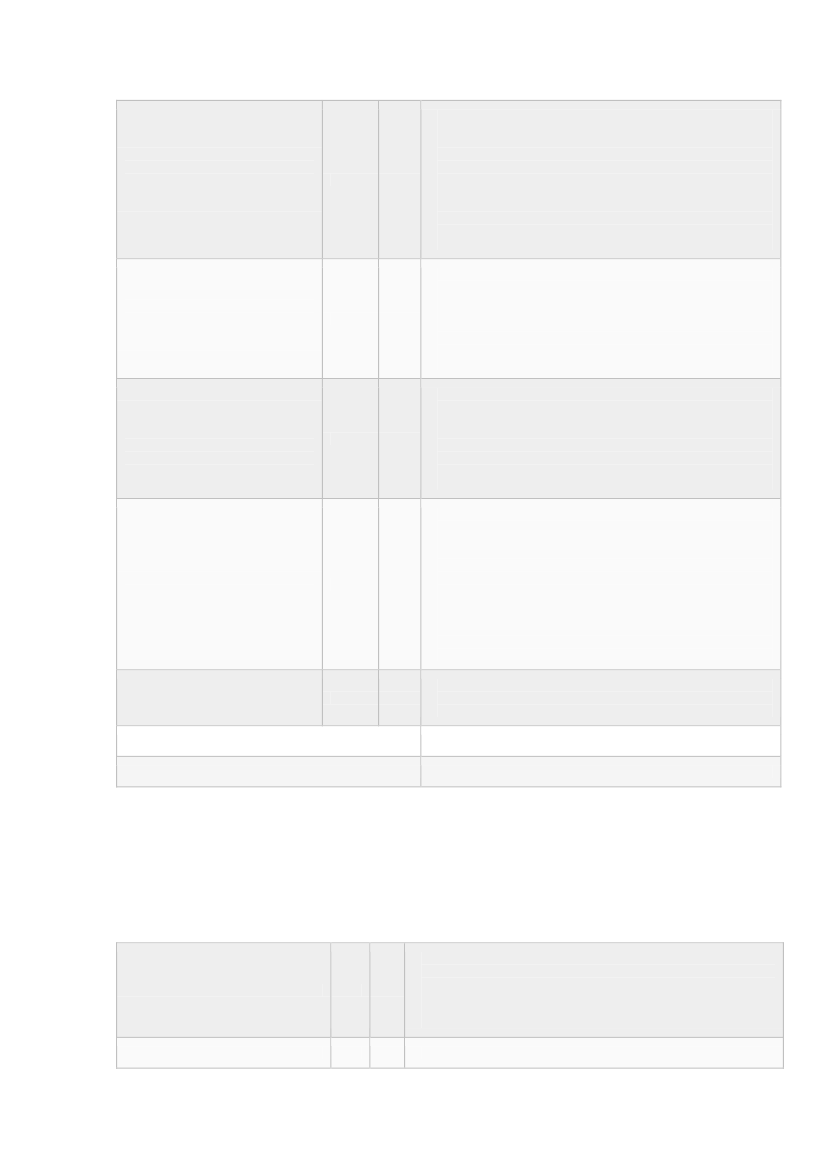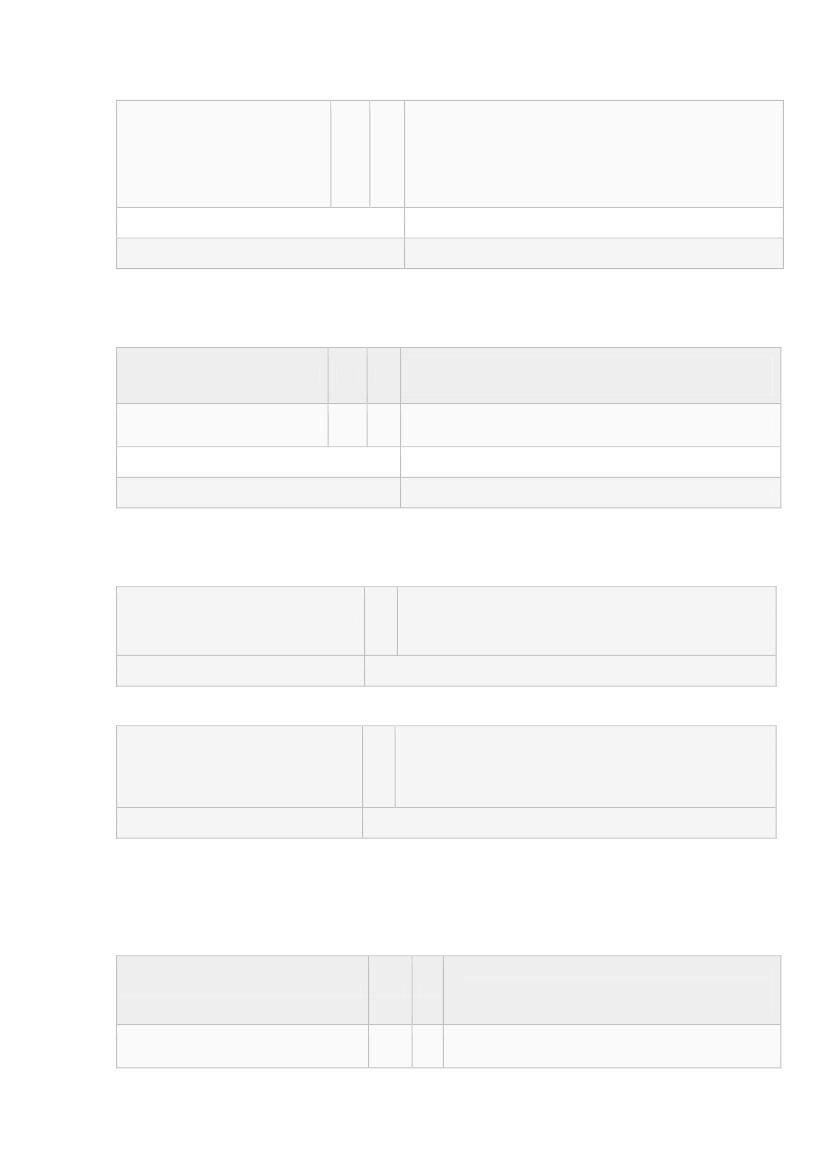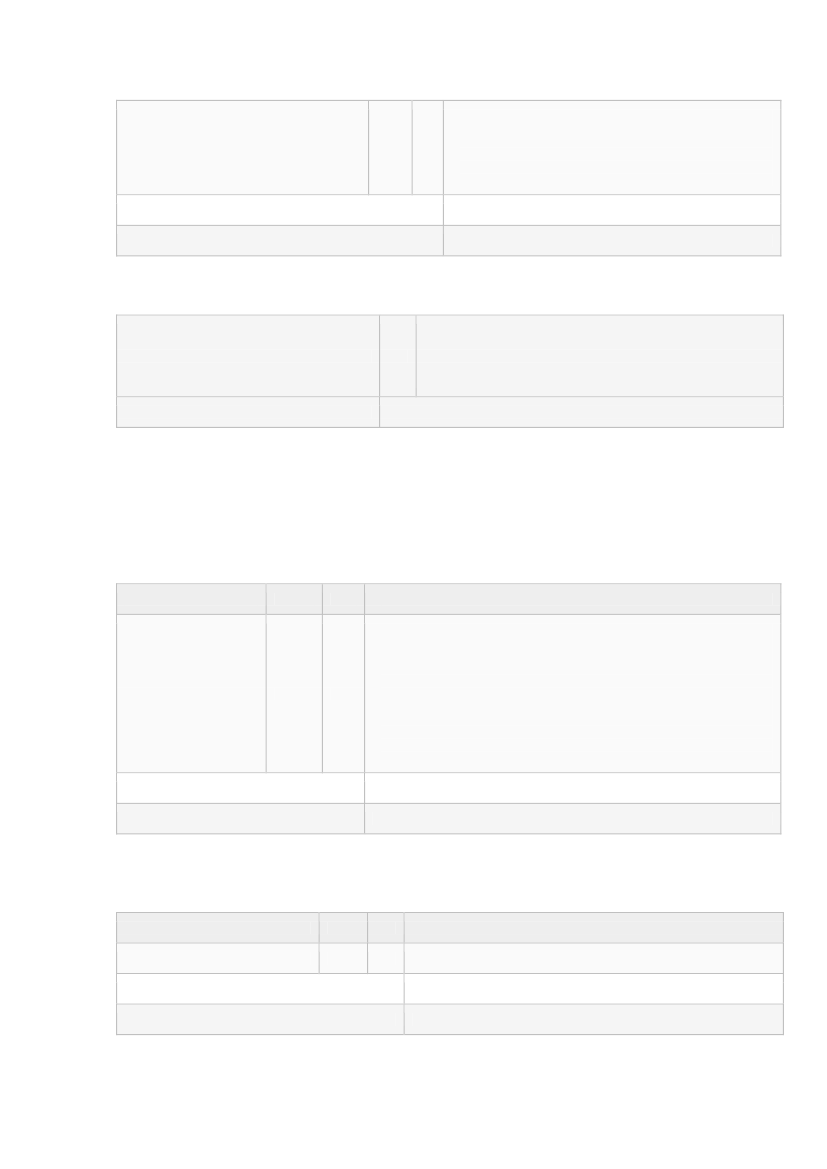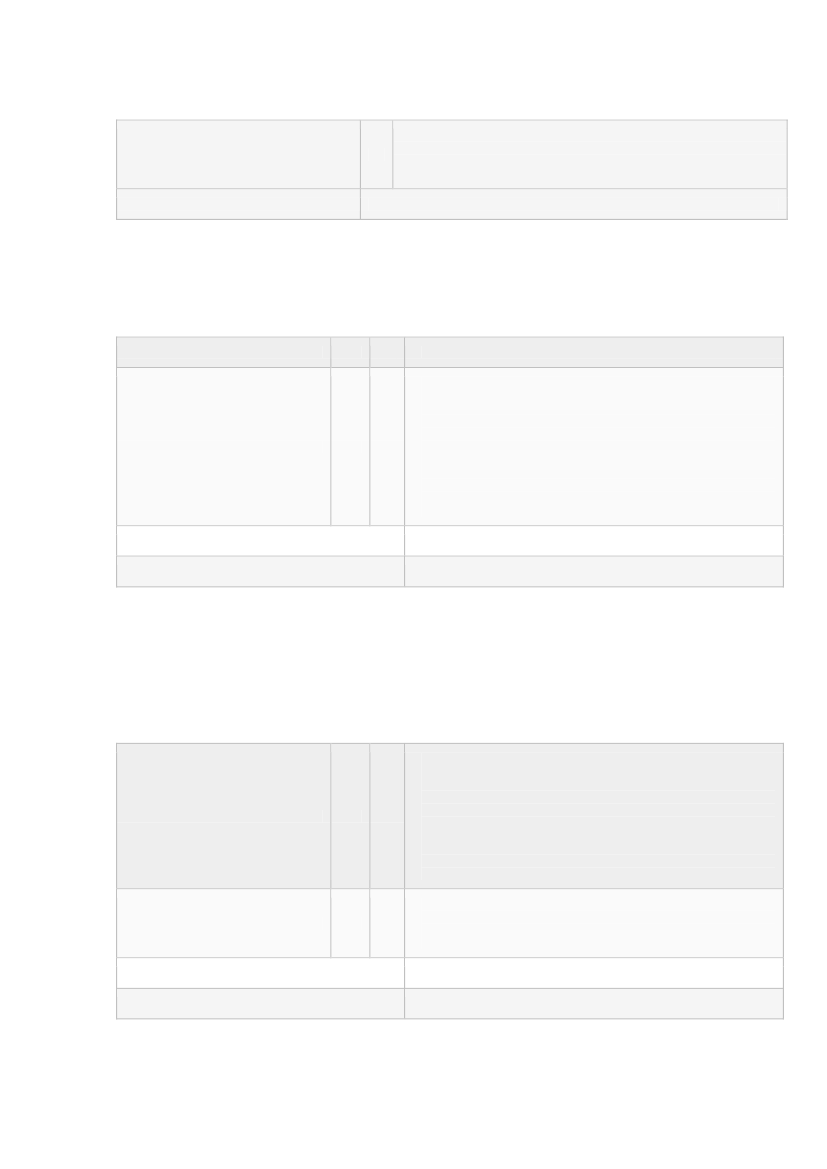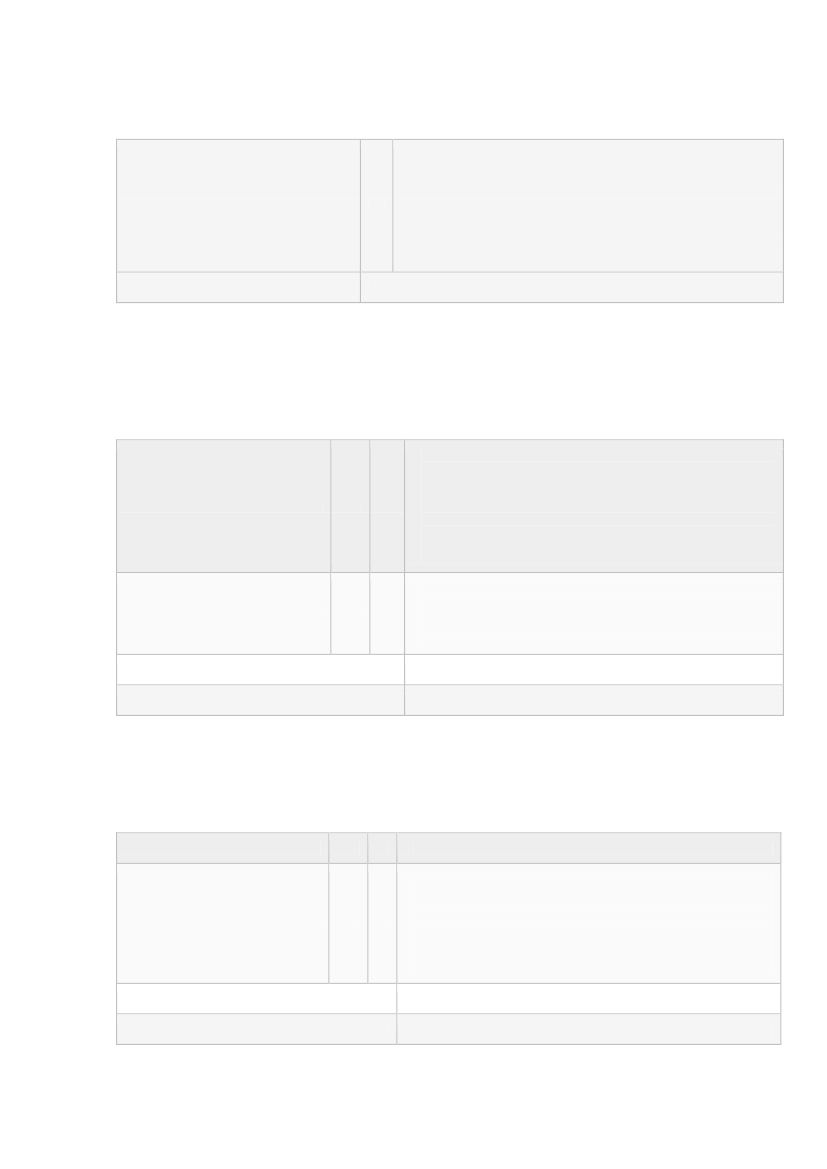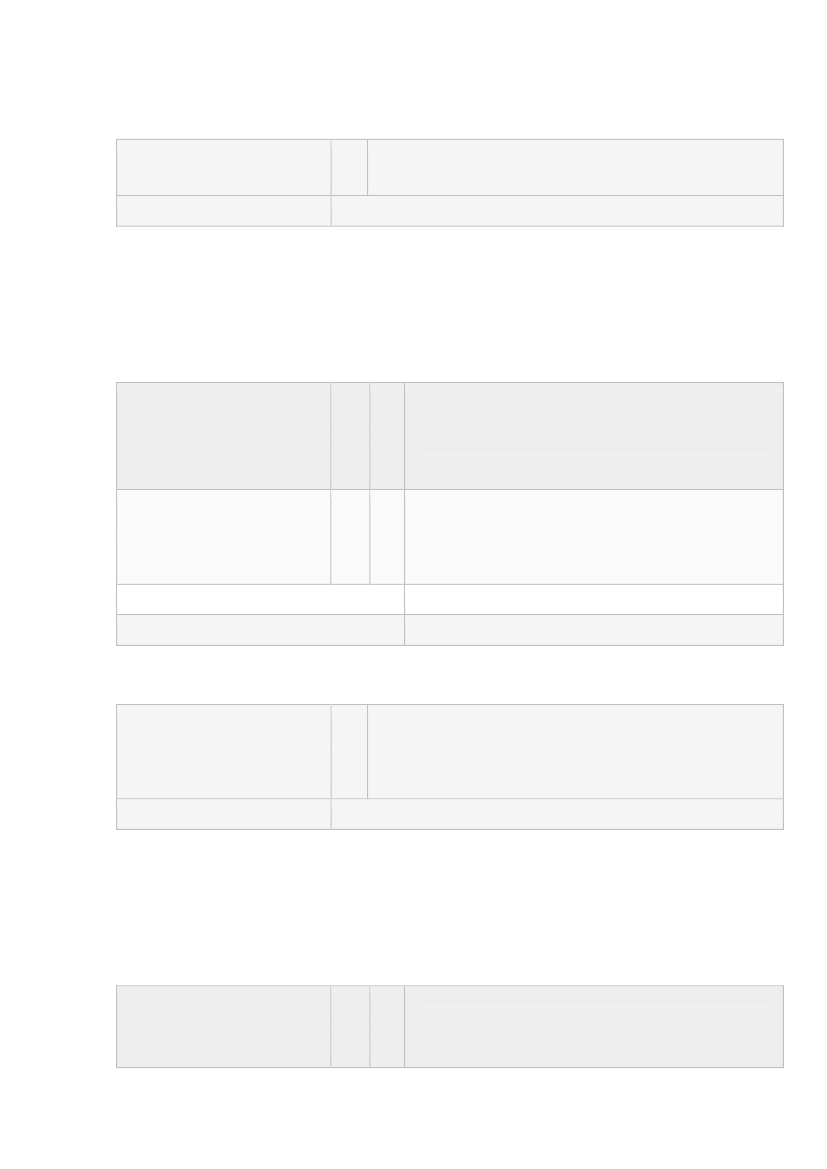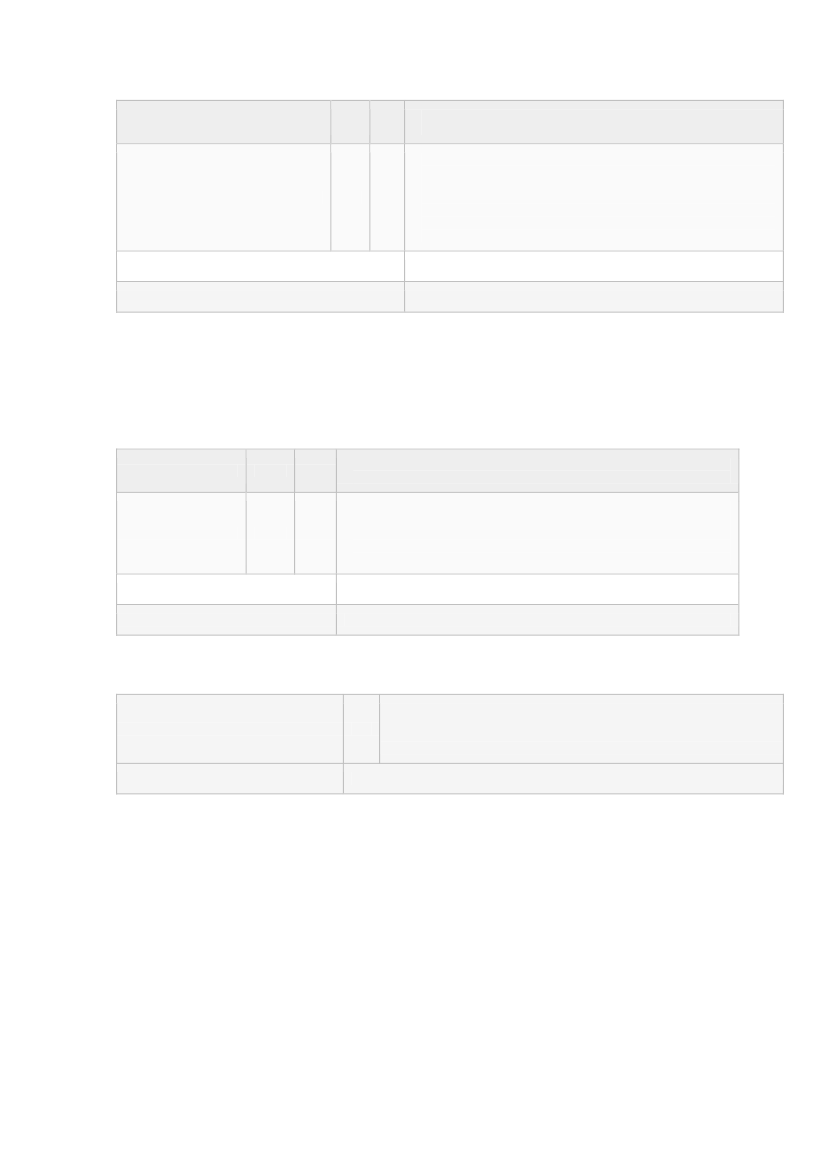Europaudvalget 2011-12
EUU Alm.del Bilag 540
Offentligt
April 2012
Seventeenth Bi-annual Report:Developments in European UnionProcedures and PracticesRelevant to Parliamentary Scrutiny
Prepared by the COSAC Secretariat and presented to:XLVII Conference of Parliamentary Committeesfor Union Affairs of Parliamentsof the European Union22-24 April 2012Copenhagen
Conference of Parliamentary Committees for Union Affairsof Parliaments of the European UnionCOSAC SECRETARIATWIE 05 U 041, 30-50 rue Wiertz, B-1047 Brussels, BelgiumE-mail:[email protected]| Tel: +32 2 284 43776
ii
Table of ContentsBACKGROUND................................................................................................................................ ivABSTRACT........................................................................................................................................ 1CHAPTER 1: INFORMATION FLOW TO AND FROM PARLIAMENTS................................................. 31.1Access to EU and EU related documents by national Parliaments.......................................31.1.1 Documents from the European Commission.................................................................31.1.2 Documents from Member State Governments............................................................. 41.1.3 Access to EU and EU related documents via a government Database..........................61.1.4 Overview of access to documents................................................................................. 81.2Exchange of information between Parliaments/Chambers............................................... 111.2.1 Use of IPEX................................................................................................................... 111.2.2 Sources of information from other parliaments......................................................... 121.2.3 Reliability of IPEX......................................................................................................... 121.2.4 Need for more information about IPEX....................................................................... 131.2.5 Reasoned opinions on IPEX.......................................................................................... 141.2.6 Translations of important decisions............................................................................ 141.2.7 Additional sources or networks used to gather information...................................... 14CHAPTER 2: RE-LAUNCH OF THE SINGLE MARKET AND PARLIAMENTS....................................... 162.1Re-launch of the Single Market and Parliaments............................................................... 162.1.1 The Single Market Act.................................................................................................. 162.1.2 12 Key Actions - fast track legislative procedure......................................................... 202.1.3 Parliamentary activity on the re-launch of the Single Market.................................... 212.1.4 Digital Agenda for Europe............................................................................................ 212.1.5 The implementation of the Services Directive............................................................ 222.1.6 Roadmap to a Resource Efficient Europe.................................................................... 23APPENDIX......................................................................................................................................24
iii
BACKGROUND
This is the Seventeenth Bi-annual Report from the COSAC Secretariat.COSAC Bi-annual ReportsThe XXX COSAC decided that the COSAC Secretariat should producefactual Bi-annual Reports, to be published ahead of each ordinary meetingof the Conference. The purpose of the Reports is to give an overview ofthe developments in procedures and practices in the European Union thatare relevant to parliamentary scrutiny.All the Bi-annual Reports are available on the COSAC website at:http://www.cosac.eu/en/documents/biannual/The two chapters of this Bi-annual Report are based on information provided by the nationalParliaments of the European Union Member States and the European Parliament. The deadlinefor submitting replies to the questionnaire for the 17th Bi-annual Report was 1 March 2012.The outline of this Report was adopted by the meeting of the Chairpersons of COSAC, held on30 January 2012 in Copenhagen.As a general rule, the Report does not specify all Parliaments or Chambers whose case isrelevant for each point. Instead, illustrative examples introduced in the text as "e.g." are used.A summary of answers can be found in the appendix to the Report and complete replies,received from all 40 national Parliaments/Chambers of 27 Member States and the EuropeanParliament, can be found in the Annex on the COSAC website.Note on NumbersOf the 27 Member States of the European Union, 14 have a unicameralParliament and 13 have a bicameral Parliament. Due to this combination ofunicameral and bicameral systems, there are 40 national parliamentaryChambers in the 27 Member States of the European Union.Although they have bicameral systems, the national Parliaments of Austria,Ireland and Spain each submitted a single set of replies to the questionnaire.
iv
ABSTRACTCHAPTER 1: INFORMATION FLOW TO AND FROM PARLIAMENTSAccess to EU documents and EU related documents produced by governments is essential toensure that national Parliaments can properly carry out their scrutiny functions. Therefore thefirst chapter of the 17thBi-annual Report examinesaccess to informationthatParliaments/Chambers have via the EU institutions and their respective Governments.The Report highlights the frequent and varied use made of the documents transmitted directlyby the European Commission to national Parliaments. As far as access to Council documents isconcerned, the Report shows that 28 national Parliaments/Chambers have access to Limitédocuments, this amounts to 70% of them. 17 out of 40 national Parliaments/Chambers haveaccess to EU Restricted documents and eight Parliaments/Chambers have access to EUConfidential documents. The Report also shows in empirical terms the number of Parliamentsthat have access to Council documents and/or EU related documents through adatabase,butnotes that the majority of Parliaments/Chambers continue to besent documents by theirGovernment.It also highlights a number of examples ofbest practicein relation to access todocuments and the use of a Government database.The exchange of information between Parliaments is becoming increasingly common andindeed essential, as a result of the strengthened role of Parliaments in the Treaty of Lisbon. Thechapter therefore also examines the use of the various forms of interparliamentary exchange ofinformation and the frequency of use by Parliaments of these sources of information such asECPRD and the COSAC website. In this context, the Report shows that the most commonly usedsources of information from other Parliamentsare the network of national ParliamentRepresentatives based in Brussels and the IPEX database.The chapter looks more closely at theuse of IPEXand shows that it is being used by staff from alarge majority of Parliaments on a daily or weekly basis. Although a number of Parliamentsconsider IPEX to be reliable or very reliable, slightly more believe that IPEX, though a valuabletool, needs improvement. To improve the reliability of IPEX all national Parliaments need toupload more comprehensive information to IPEX in a timely manner and to use the IPEXsymbols correctly. Some encouraging trends are also identified: an overwhelming majority ofParliaments/Chambers provide translations or summaries of important decisions in Englishand/or French, noting that the European Parliament translates reasoned opinions into 21 EUlanguages; and that reasoned opinions are uploaded onto IPEX within one or two days ofadoption by a large majority of Parliaments/Chambers.
1
CHAPTER 2: RE-LAUNCH OF THE SINGLE MARKET AND PARLIAMENTSThe second chapter of the 17thBi-annual Report investigates the parliamentary activity aroundthe re-launch of the Single Market. The chapter uses information provided byParliaments/Chambers, as well as information from the respective relevant websites of theCommission, the European Parliament and IPEX, to examine the parliamentary scrutiny of thisimportant policy in the year of its 20th anniversary.The chapter begins with a section focusing on the Single Market Act examining theParliaments'/Chambers' positions on theCommission's 12 key actions,which have beenconsidered by half of the Parliaments/Chambers. In this section the Report shows that 14Parliaments/Chambers consider some of the key actions to be more important than others. TheReport examines whether the Commission's proposals under the re-launch of the Single Markethave been prioritised in the internal decision-making process in the Parliaments/Chambers. Italso highlights theparliamentary activitiesof the Parliaments/Chambers in relation to the re-launch of the Single Market. The Report shows that 15 Parliaments/Chambers organisedhearings/meetings on the subject and a number participated in the Single Market Forumorganised by the Polish Presidency, the European Parliament and the European Commission.Finally the chapter considers three areas in more detail as they are directly linked to theprogramme and will inform the debate of the XLVII COSAC meeting in Copenhagen in April2012. These are aDigital Agenda for Europe, the implementation of the Service Directive anda Roadmap to a Resource Efficient Europe,which all three have been considered by asignificant number of Parliaments/Chambers.
2
CHAPTER 1: INFORMATION FLOW TO AND FROM PARLIAMENTS1.1 Access to EU and EU related documents by national ParliamentsMember State Governments have traditionally been held democratically accountable bynational Parliaments for actions taken as Member States of the European Union acting inCouncil. Access to EU documents and EU related documents produced by Governments isessential to ensure national Parliaments/Chambers can properly carry out their scrutinyfunctions. In previous COSAC Bi-annual Reports, focus has been given to the differentprocedures and practices of scrutiny by national Parliaments/Chambers of European Unionmatters.1Access to information and documentation from the EU institutions has traditionally beenimportant for parliamentary scrutiny. Since 1 September 2006, the European Commission hasdirectly transmitted Commission documents to national Parliaments with the aim ofstrengthening the political dialogue between the Commission and national Parliaments (the so-called Barroso initiative). The Treaty of Lisbon formalised the transmission of certainCommission documents to national Parliaments. Under Article 1 of Protocol 1 of the Treaty ofLisbon Commission consultation documents (green and white papers and communications) andthe annual legislative planning documents shall be forwarded directly to national Parliaments.Under Article 2 draft legislative acts from the European Commission (as well as from theEuropean Parliament or a group of Member States, the ECJ, the ECB or the EIB) will beforwarded to national Parliaments.2The first chapter of the 17thBi-annual Report of COSAC is divided into two sections. The firstsection examines the various documents and databases available to Parliaments/Chambers –either from governments or directly from the European Commission. This section also collatesinformation on those Parliaments/Chambers that have access to Government databasescontaining relevant EU information.The aims of section 1.1 of the 17thBi-annual Report are to outline the EU and EU relateddocuments currently available to national Parliaments/Chambers, to compare the situation indifferent Parliaments/Chambers and, throughout the section, to highlight examples of bestpractice. Please note that the information in this section does not apply to the EuropeanParliament but only to the 40 national Parliaments/Chambers.1.1.1 Documents from the European CommissionOut of 40 national Parliaments/Chambers,34 use the documents transferred directly from theEuropean Commissionand five Parliaments/Chambers use only the European Commissiondocuments transferred by the Government.
1
COSAC has looked at the procedures and practices of scrutiny of European Union matters in the EU national Parliaments in theThird Bi-annual Report of COSAC (May 2005), in the Eighth Bi-annual Report of COSAC (Oct 2007) and in the Thirteenth Bi-annual Report of COSAC (May 2010).http://www.cosac.eu/en/documents/biannual/2Official Journal of the European Union 2008/C115/1
3
Parliaments/Chambers makeuse of the European Commission documentsin a number ofways. Pie chart 1 shows the highest number of Parliaments/Chambers (27 out of 40) use thesedocuments asbackground material for staffand 23 out of 40send the documents to Membersof Parliament.3Pie chart 1: Different regular uses made of European Commission documents
Sent to MP1823
Background material for staffMetadataUploaded to the Parliament/ChamberwebsiteSent to MEPs
2
13
2715
Other
In addition, some Parliaments/Chambersrefer the Commission documents to competentstanding/sectoral committees.In some cases this is done on the basis of an assessment by theEuropean Affairs Committee or the European Affairs Department (staff) on the basis of politicalrelevance of the document/proposal. For example, in the LuxembourgChambre des Députésthe "cellule européenne" sorts the documents into two categories (documents which areconsidered not to require any monitoring and documents to be further analysed by acommittee). The IrishHouses of the OireachtasLibrary & Research Services make weeklyreports of all the documents received and make these available to Members electronically. Inthe DutchTweede Kamerthe prioritised proposals "are sent directly to MPs, with an advicefrom staff on how to actively discuss these proposals."1.1.2 Documents from Member State GovernmentsNumber of documents receivedIn graph 1, the number of EU documents and EU related documents (such as notes, backgrounddocuments, briefs, etc) that are received from Government is displayed. The fourChambers/Parliaments that receive no EU documents from their Government (PolishSejmandSenat,GreekVouli ton Ellinon,CypriotVouli ton Antiprosopon)all make active use of thedocuments directly transmitted from the European Commission. Interestingly, the BelgianChambre des représentants,answered that since the coming into force of the Treaty of Lisbonthe Federal Government had stopped forwarding EU documents (with the exception of theagenda of Council formations and any documents requested in relation to monthly meetings itholds with Ministers on Council activities). Since Poland joined the EU, theSejmhas access to agovernment database of documents transmitted from the EU but is only using it in veryexceptional cases as it is not appropriate for the needs of theSejm.3
See appendix for full information on replies giving the response of each Parliament/Chamber (Q2, page 1).
4
Graph 1: Number of documents received from Government
2018161412108644220NoneLess than 50Between 50-100Between 100-200 Between 200-500175432711
19
10
EU documentsEU related documents
Over 500
When comparing the number of EU documents received and the number of EU relateddocuments produced by the Government, it may be worth noting that 14Parliaments/Chambers receive the same number of both types of document. TenParliaments/Chambers receive fewer EU related documents and eight Parliaments/Chambersreceive more EU related documents. The link between the Government sending EU documentsand producing EU related documents in some Parliaments/Chambers is clear: for example theLithuanianSeimasnotes that the Government is obliged to submit a written position for anyCommission proposal that is categorised by theSeimasas very relevant or relevant.Categories of documents sent by the GovernmentA clear trend can be observed in the replies to which categories4of documents are sent by theGovernment:the lower the security classification of the document, the higher the number ofParliaments/Chambers that are sent the document by their Government.27 of theParliaments/Chambers receive Limité documents. 17 receive EU Restricted documents andseven receive EU Confidential documents. Only the AustrianNationalratandBundesratreceiveEU Secret and Top Secret.20 Parliaments/Chambers are sent thelatest COREPER documentsby their Government, 18 aresent thelatest Council working group documentsand 14 are sentbriefing documentsand/orinstructions for Government attachés.5The SwedishRiksdagis guaranteed full access under law to all official documents when theParliament demands them from the Government, or a Government authority/agency.6However, it clarifies that in practice the Government rarely sends any documents with aclassification above EU Restricted.
4 See "Handling of documents internal to the Council"http://register.consilium.europa.eu/pdf/en/11/st11/st11336.en11.pdf5See appendix for full information on replies giving the response of each Parliament/Chamber (Q7, page 4).6See full response in the Annex to Bi-annual Report for more details.
5
Case Study: The AustrianNationalratandBundesratOn 1 January 2012 the Austrian "EU Information Law" entered into force. This law complements the existingobligation of the Austrian Government to inform the Parliament on EU matters and has simplified access to EUdocuments by making available the Council’s extranet to the Parliament, enhancing the Parliament's scrutinypossibilities by establishing or formalising measures such as asking the Government to give “information onfuture EU projects” on a half-yearly basis.On top of Council documents, the AustrianNationalratandBundesratreceive other documents such as reportson meetings of the European Council and Council formations as well as on meetings of preparatory bodies andexplanatory memoranda of items on the agenda of EU Committees, information on future EU projects on a halfyear basis, a yearly outlook based on the Commission’s work programme, information on ongoing subsidiarityactions forwarded by the Parliament, explanatory memoranda on subsidiarity and information on initiatives ofthe European Council regarding the passerelle.In order to deal with the large amount of information delivered to the Parliament an internal EU database wascreated soon after Austria's accession to the EU in 1995. It accommodates information from the governmentand (since 2006) documents directly transmitted by EU institutions. Each day approx. 100-150 documents areuploaded. With the new "EU information law", new categories of documents will be included. Public documentsare made available on the internet to the public, whereas Limité documents remain on the intranet section.7
It should be noted that Parliaments/Chambers oftenreceive other EU related informationfrom their Government.For example the LithuanianSeimasadded that the Committee onEuropean Affairs or any specialised committee may request additional information orinformation necessary for deliberation from governmental bodies. The ItalianSenato dellaRepubblica,when examining green and white papers and communications, may request aGovernment report on the status of negotiations, the impact on Italian legislation and opinionsprovided by any advisors.1.1.3 Access to EU and EU related documents via a government Database18 out of 40national Parliaments/Chambers are offeredaccess to a government databasecontaining relevant EU information and documents. Two of these answers, however, appear torefer to databases of the Parliament/Chamber of EU documents (discussed later).The FrenchSénathas access to two databases, one containing diplomatic telegrams and theother EU working documents and proposals. The GermanBundestagandBundesrathave accessto the database that contains Council documents. In the government database accessed by theLatvianSaeima"documents are organised according to relevant Councils of Ministers anddocuments from the European Council and COREPER meetings have separate sections...Thereare also sections devoted to written procedure and Council decisions". The BelgianChambredes représentantshas access to a database that "contains documents of specific interest to theBelgian authorities in the framework of transposition of EU legislation."A number of Parliaments/Chambers haveinternal databaseswhich are used to manage EUinformation sent from the Government. For example the SlovenianDržavni svet(NationalCouncil) explained it has access to EU documents through an internal database. The ItalianCamera dei DeputatiandSenato della Repubblicaestablished a joint database to track all stagesof scrutiny of EU documents. The BulgarianNarodno sabraniemaintains a database on draft7 German text of Law":http://www.ris.bka.gv.at/GeltendeFassung.wxe?Abfrage=Bundesnormen&Gesetzesnummer=20007573
6
acts and other documents of the EU institutions and the positions of the Bulgarian Governmentsent to the National Assembly. The UKHouse of CommonsandHouse of Lordsjointly operate aninternal EU scrutiny database. The PolishSejmmanages its own "Eudoc" database whichincludes the governmental positions transmitted to theSejm.The HungarianOrszággyűlésalsosupports the parliamentary scrutiny of EU documents through an internal "EUDOC" database.Of the Parliaments/Chambers thathaveaccess to governmentdatabases,17 have access to publicdocuments through this route. Inaddition 13 Parliaments/Chambershave access toLimité documents,three Parliaments/Chambers haveaccess to EU Restricted and twoParliaments/Chambers have accessto EU Confidential documents. 13Parliaments/Chambers haveaccessto the latest COREPER documentsand latestCouncil working groupdocumentsand five have access tobriefingdocumentsand/orinstructionsforgovernmentattachésthrough that database.8Case Study: The LithuanianSeimasThe LithuanianSeimashas full access to the government managedEU Information System (LINESIS). LINESIS offers the possibility tosearch, download and print EU documents and find any relatedadditional information. MPs and parliamentary staff are given freeaccess to the entire government database. For security this islimited by IP address. The LithuanianSeimashas access via thisroute to documents in the following categories: public, Limité, EURestricted and EU Confidential. It also has access to the latestCOREPER documents, Council working group documents andbriefing documents and/or instructions for government attachés inBrussels. It is possible to subscribe and regularly receive by e-mailcertain EU documents and government papers (positions, reportsfrom the working groups, non-papers, etc.). The Parliament canalso contribute actively to this database and it uploads its ownrelevant documents (committee conclusions, opinions, resolutions,etc.) regularly to LINESIS.In addition, the LithuanianSeimasuses and manages its owndatabase which has the possibility to store and up-loadparliamentary documents on EU matters. This database has anindirect connection with IPEX (parliamentary documents are notuploaded to the IPEX database, but there are links from IPEXinformation to the database of the LithuanianSeimas).
Database accessDatabase access is available in a greater number of Parliaments/Chambers to staff(seniorstaff of Committees by 16 Parliaments/Chambers, Committee secretariat by 12Parliaments/Chambers and the National Parliament Permanent Representative by 13Parliaments/Chambers) than to Members (ten Parliaments/Chambers) and their personal staff(nine Parliaments/Chambers), as would be expected.In addition to the categories above, databases are often available also to additional staff ofnational Parliaments/Chambers (e.g. the EU Affairs Department of the BelgianChambre desreprésentantsand the Legal and PoliticalCase Study: The CzechPoslanecká sněmovnaandSenátInformation Unit of the ParliamentaryBoth Czech Chambers have unrestricted access to theResearch Department of the LithuanianGovernment database which includes the followingcategories of EU documents: public, Limité and EUSeimas).In addition to Members and staffRestricted. The Czech Parliament also has access to theof national Parliaments/Chambers, thegovernment database that contains "instructions forGermanBundesratnotes that staff withinnegotiation in the Council working groups and COREPER,the regional (Länder) authorities also havethe mandates for the deliberation in the Councilaccess to the database. Of the 18meetings as well as the negotiation results, and alsosome framework positions to the important EUParliaments/Chambers that have access toinitiatives, acts and documents."theirGovernmentdatabase,three8
See table 1 on page 10 for more information
7
Parliaments/Chambers say that theinformation contained in the database was also availableto the public.These are the BulgarianNarodno sabranie,the UKHouse of Lordsand theSlovenianDržavni zborwho access only public documents through their Government database.Four other Parliaments/Chambers state that the public have access in part and 11Parliaments/Chambers answer that the public have no access at all.When asked whether they haveunrestricted access to the database,11 Parliaments/Chambersreply that the database information is freely available to them while seven say thatParliaments/Chambers access is restricted. Those who have unrestricted access to theGovernment database can mostly only access public documents (UKHouse of Lords)or publicand Limité documents (e.g. ItalianCamera dei Deputati,BulgarianNarodno sabranieandGermanBundestagandBundesrat).The Italian Government database has restricted accessreserved to the Italian Parliament, and regional and local authorities. The Estonian database isavailable to the public but some documents are restricted to some viewers (access to suchdocuments with an ID card).1.1.4 Overview of access to documentsGraph 2: Classifications of documents accessible to Parliaments/Chambers40353025201510510PublicDocumentsLimitéDocumentsEU RestrictedDocuments1532122EU SecretDocuments22EU Top SecretDocuments38
28Total number ofParliaments/Chambers with access toEU DocumentsOnly sent by the Government
2116
17Both
1512
148
Accessed only through a Database
EUConfidentialDocuments
Graph 2 gives an overview of the accessibility of different classifications of Council documentsavailable to national Parliaments/Chambers. It shows that a large majority ofParliaments/Chambers have access to public documents, either as they have been sent by theirGovernment or through a database or both of these routes.A total of 28Parliaments/Chambers are able to access Limité documents, this amounts to 70% of allnational Parliaments/Chambers- a significant proportion. It also shows that a total of 17 out of40 national Parliaments/Chambers receive EU Restricted documents and eight have access toEU Confidential documents.Graph 2 shows that even though a number of Parliaments/Chambers have access to thedocuments by database,all of them except one are still also sent the documents by their8
Government.This may show that Parliaments/Chambers do not wish to have to filter the largeamount of EU information available through a database. If it is the case that the Governmentalso attaches briefing to EU documents it sends, the Parliament/Chamber could more easilyidentify significant proposals and judge the impact of proposals at a national level.Graph 3: Categories of documents on Council activities/briefings accessible toParliaments/Chambers and how accessed302422201715Both10119540Latest COREPERLatest Council WGBriefing or instructions for governmentattachés4239912Accessed only through a DatabaseTotal number of Parliaments/Chamberswith access to Council DocumentsOnly sent by the Government
25
This graph shows that a slightly higher number of Parliaments/Chambersaccess documents onCouncil activities including briefing or instructions only through a Government databaseascompared to those accessing EU documents.Table one (on the next page) has been collated to give readers the opportunity to easilycompare the documents and information available to each national Parliament. It is intended toshow the information summarised in this section of the chapter in an easily digestible format.
9
Table 1: Access to documents (by Parliament/Chamber)Key: Sent by Govt. – documents sent to Parliaments/Chambers by the Government; Database – access to documents through a Government database; Both – documents12sent by the Government and accessed through a Government database. – documents sent automatically by the Government; – documents have to be requested by the3Parliament/Chamber; – some documents are sent and others have to be requested.AUNationalrat + BundesratBEChambre des représentantsBESénatBGNarodno Sabranie3CYVouli ton Antiprosopon2CZPoslanecká sněmovna3CZSenát3DEBundestag1DEBundesrat1DKFolketing3EERiigikogu3ELVouli ton Ellinon2ESCortes Generales3FIEduskunta3FRAssemblée nationale1FRSénat1HUOrszággyűlés3IEHouses of the OireachtasITCamera dei Deputati3ITSenato della RepubblicaLTSeimas1LUChambre des Députés3LVSaeima3MTKamra tad-Deputati1NLTweede Kamer3NLEerste Kamer3PLSejm3PLSenat3PTAssembleia da República3ROCamera Deputaţilor2ROSenatul3SERiksdag3SKNárodná rada3SLDržavni zbor1SLDržavni svet3UKHouse of Commons3UKHouse of Lords133
PublicBothSent by Govt.Sent by Govt.BothSent by Govt.BothBothBothBothSent by Govt.BothSent by Govt.Sent by Govt.Sent by Govt.BothBothSent by Govt.Sent by Govt.BothBothBothSent by Govt.DatabaseSent by Govt.Sent by Govt.Sent by Govt.
LimitéBothSent by Govt.Sent by Govt.Sent by Govt.BothBothBothBothSent by Govt.BothSent by Govt.Sent by Govt.Sent by Govt.BothBothSent by Govt.BothBothBothDatabase
EU RestrictedSent by Govt.Sent by Govt.
EU ConfidentialSent by Govt.
EU SecretSent by Govt.
EU Top secretSent by Govt.
COREPERBothSent by Govt.Sent by Govt.
Council WGBoth
Briefings
Sent by Govt.BothBothDatabaseBothDatabaseSent by Govt.Sent by Govt.BothBothSent by Govt.BothBothDatabaseDatabaseDatabaseDatabaseBothDatabaseSent by Govt.Sent by Govt.Sent by Govt.Sent by Govt.Sent by Govt.Sent by Govt.BothSent by Govt.
Sent by Govt.Sent by Govt.Sent by Govt.Sent by Govt.Sent by Govt.
BothBothDatabaseBothDatabase
Sent by Govt.Sent by Govt.BothBoth
Sent by Govt.Sent by Govt.Both
Sent by Govt.Sent by Govt.BothBothSent by Govt.Both
Both
Both
BothDatabaseDatabase
Sent by Govt.BothSent by Govt.Sent by Govt.Sent by Govt.BothSent by Govt.Sent by Govt.Both
Sent by Govt.
Sent by Govt.Sent by Govt.Sent by Govt.Sent by Govt.Sent by Govt.
Sent by Govt.Sent by Govt.Sent by Govt.Sent by Govt.
Sent by Govt.
Sent by Govt.Sent by Govt.Sent by Govt.Sent by Govt.Sent by Govt.
Sent by Govt.Sent by Govt.Sent by Govt.
Sent by Govt.Sent by Govt.
Sent by Govt.
Sent by Govt.
10
1.2 Exchange of information between Parliaments/ChambersWhilst access to information and documentation from EU institutions has traditionally beenimportant for parliamentary scrutiny, the exchange of informationbetweenParliaments isbecoming increasingly common and indeed essential, as a result of the strengthened role ofParliaments in the Treaty of Lisbon.The second section analyses how information published on IPEX9isaccessed and usedbyParliamentary users. Specific focus has been given to the exchange of information onsubsidiarity issues and on the political dialogue in order to determine whether IPEX offersvalue-added information compared to other means of exchanging information.1.2.1 Use of IPEXIn 36 out of 40 Parliaments/Chambers staff consult IPEX on a daily or rather weekly basis(17respondents consult it on a daily basis, 19 search the database at least once a week), whereasin others the frequency is between once and twice a month. European Parliament committeestaff regularly carry out checks on IPEX, as the database often contains courtesy translations ofnational Parliament submissions.When it comes toMembers consulting IPEX,the picture looks quite different.In 25Parliaments/Chambers Membersrarelyconsult IPEX, and in three Parliaments/Chambers theynever do. In 12 Parliaments/Chambers consultation by Members varies between once a weekand once a month. The UKHouse of Lordsadds that the Chairman of its EU Select Committeeoften consults IPEX. The European Parliament, recognising the need to raise awareness aboutIPEX, foreseestraining sessionson IPEX for Members and their assistants in the near future.10Subscription profileson IPEX provide the possibility to enhance the personalised use of thiswebsite. There are different levels of personalised accounts for different categories of users.The kind available to every IPEX user allows saving searches performed in the database.11Otheraccounts, with possibilities to update national Parliaments' sections are provided for IPEXCorrespondents and staff responsible for uploading data. There are also profiles for nationalParliament Representatives in Brussels, to facilitate exchange of information on subsidiaritycontrols and early warning on scrutinized draft legislative acts.In most (19) of the responding Parliaments/Chambers there are users besides the IPEXCorrespondent with subscription profiles on IPEX. There are eight Parliaments/Chambers withonly this one profile, six Parliaments/Chambers has one additional subscription profile andthree Parliaments/Chambers declare more than ten profiles: the European Parliament, theSwedishRiksdag12and the RomanianCamera Deputaţilor.9
IPEX is a webpage designed in 2000 for the exchange of information between the national Parliaments and the EuropeanParliament on EU-issues –http://www.ipex.eu/IPEXL-WEB/home/home.do10Training sessions have already taken place also in a number of national Parliaments and a number more are planned.11http://www.ipex.eu/IPEXL-WEB/widgets/download.do?widgetId=082dbcc530d630570130d6f3024d00fa&fileId=082dbcc5312cf97d013147bc06ee0ae012
According to additional information from the SwedishRiksdag,the IPEX Correspondent coordinates workconducted in every parliamentary committee by users with subscription profiles. Every committee is responsiblefor information on IPEX about scrutiny of EU draft legislative acts which are in their scope of interest.
As the IPEX database is quite frequently consulted by officials in many Chambers/Parliaments, itseems that the use of this tool is independent from the availability of the link to IPEX on theParliament/Chamber website.12 Parliaments/Chambers provide links to the IPEX on theirwebsite and on the Intranet.A further 17 provide this link on their website only, and twoParliaments/Chambers declare that the link is available only on the Intranet. Ten out of 41respondents declare no links to IPEX.131.2.2 Sources of information from other parliamentsAs can be seen in Graph 4, the most commonly used sources of informationfrom otherparliaments on the control of subsidiarity and the informal political dialogue arenationalParliament Representatives in Brussels(25 Parliaments/Chambers use them as a primarysource and 12 as a secondary source).IPEX is the second most commonly used sourcewith 18Parliaments/Chambers using it as a primary source and 18 using it as a secondary source.Graph 4: Sources of information from other Parliaments/Chambers
302525
2016151210755201� source2� source36216
18 18
IPEXNational Parliament Representative in BrusselsCOSAC119
Bi-lateral contacts
31
3
2
Occassional source
Ad-hoc source
None
In the case of the European Parliament, all documents are officially transmitted by nationalParliaments to the President of the European Parliament. The President refers these documentsto the committees responsible for the subject matter and forwards them for information to thecommittee responsible for respect of the principle of subsidiarity (Legal Affairs Committee).Concerning the political dialogue, the directorate responsible for relations with nationalParliaments transmits all the contributions to the relevant parliamentary committee.1.2.3 Reliability of IPEXRegarding the question on reliability of IPEX Parliaments are overall divided into two groups: asmall majority of22 respondents hold the view that IPEX needs improvement, but still is avaluable tool.19 out of 41 respondentsconsider IPEX reliable or very reliable(15 and fourrespectively).
13
See appendix for full information on replies giving the response of each Parliament/Chamber (Q5, page 12).
12
Graph 5: Reliability of IPEX in relation to how much it is used1098765432101� source2� sourceOccasionalsourceAd-hoc source543Needs improvement, but still avaluable tool
9775
Very reliableReliable
As can be seen in graph 5 above, all four Parliaments/Chambers that regard IPEX as veryreliable also use it as a primary source of information on subsidiarity control. In the group whichconsiders IPEX a reliable source of information there are seven Parliaments/Chambers who useit as a primary source and seven who use it as a secondary source. Respondents who hold theview that IPEX needs improvement, but still is a valuable tool, use IPEX diversely: five as aprimary source, nine as a secondary source, five as an occasional source, and three as anad-hocsource.14The Parliaments/Chambers that judge theIPEX database to be very reliable or reliable,mentioned in their replies that:- it is anefficient and the fastest wayto access the official information from otherParliaments/Chambers;- it providesclear and easyaccess to relevant information regarding EU issues;- it provides information on thecalendar of interparliamentary activities;and- thenew IPEX websiteis a great improvement.Some Parliaments/Chambers voiceconcerns,for example:- the need for more national Parliaments toupload information consistentlyto the IPEXdatabase in atimely mannerto promote the proper flow of information;- theIPEX symbolswhich are not easily recognisable and used incorrectly or ambiguously;- the need to makemore information available in English or French(especiallytranslations of reasoned opinions or at least their summaries); and- theinconsistency between IPEX figures on reasoned opinionsand those that can befound via other interparliamentary sources of information.1.2.4 Need for more information about IPEXOn the need tobe better informed on what is available on IPEX and how to access it,amajorityof 35 Parliaments/Chambers hold the view that there isno such need.SixParliaments/Chambers have identified a need for more information. The LithuanianSeimas14
See appendix for full information on replies giving the response of each Parliament/Chamber (Q3, page 10, Q6,page 12).
13
wishes to be better informed aboutinter aliathe XML project (Extended Mark up Language)and the possibility to participate in the IPEX Roadshow. The European Parliament intends toproactively promote IPEX. An information session with parliamentary committees and policydepartment staff was held on 3 February 2012 and similar sessions are planned for politicalgroups’ staff, Members and their assistants.1.2.5 Reasoned opinions on IPEXA large majority of Parliaments/Chambers (32 out of 40)upload reasoned opinions andopinions under the political dialogueon the IPEX website eitheron the day of adoption orwithin two daysfollowing adoption. Another six Parliaments/Chambers upload documentswithin a week following adoption.15The European Parliament, for its part, highlights that it has established a database of reasonedopinions and other contributions under Protocol 2 in the form of a table with hyperlinks toIPEX, which is available to Representatives of national Parliaments on the European Parliamentintranet pages.1.2.6 Translations of important decisionsAn overwhelming majority of37 Parliaments/Chambersstate that theyprovide translations orsummariesof important decisions in English and/or French on IPEX. The European Parliament,for its part, translates all reasoned opinions into 21 EU languages. The LithuanianSeimasas arule translates all reasoned opinions into English.1.2.7 Additional sources or networks used to gather informationAmongadditional sources of informationused by Parliaments/Chambers theCOSAC websiteand theECPRD network(European Centre for Parliamentary Research and Documentation) arementioned by 85% (35 out of 41) and 78% (32 out of 41) of respondents respectively. TheBelgianChambre des représentantsintensively uses the ECPRD network by launchingquestionnaires or replying to them, consulting the online database and updating the page onparliamentary practice and procedure. The European Parliament, too, is a frequent user of theECPRD network for matters related to parliamentary practices and procedures, and explainsthat several high level working groups (on issues such as raising the attractiveness of plenarymeetings,16security and access to buildings and a code of conduct for Members) havebenefited from ECPRD input. The UKHouse of Commons"finds it a valuable (and almostunique) way of quickly finding out the latest position in other countries" and believes thatECPRD conferences have provided useful forums for parliaments to exchange ideas andexperiences. 56% (23 of 41) of Parliaments/Chambers name theEuropean Commission'swebsite on national Parliamentsas a useful additional source of information. The recentlyestablished (2011)European Parliament's databaseon reasoned opinions and contributions,which is only available on the European Parliament's intranet, is consulted by 46% (19 out of41) of Parliaments/Chambers. As national Parliaments can access this database only throughtheir representatives in Brussels, this figure suggests that representatives have promptlystarted making use of this extra information channel.17
1516
See appendix for full information on replies giving the response of each Parliament/Chamber (Q9, page 13).EN Working Group on Improving the Attractiveness of Plenary Sessions17See appendix for full information on replies giving the response of each Parliament/Chamber (Q11, page 14).
14
11 Parliaments/Chambers indicate that they use avariety of other sourcesof information, too.These include the Representatives in Brussels (LithuanianSeimasand PolishSenat),websites ofnational Parliaments (PolishSejm,SwedishRiksdagand European Parliament), the website ofthe EP Directorate for relations with national Parliaments (BelgianChambre des représentants),the European Parliament website (CzechSenát- specifically the Legal Affairs Committee pagesfor translations of reasoned opinions, the ItalianSenato della Repubblicaand the PolishSejm),the website of the Parliament of the country holding the rotating Presidency (ItalianSenatodella Repubblica),numerous websites on an ad hoc basis (PolishSejm)and contacts andinformation through delegations to Member States, interparliamentary committee meetingsand related questionnaires, bilateral meetings between rapporteurs and videoconferences(European Parliament).
15
CHAPTER 2: RE-LAUNCH OF THE SINGLE MARKET AND PARLIAMENTS
2.1 Re-launch of the Single Market and ParliamentsIn October 2010 the Commission announced a re-launch of the Single Market not only tostimulate much needed economic growth, but also to reinforce citizens’ and companies’confidence in the functioning of the Single Market. For this purpose the Commission presented50 different ideas ranging from increasing European competitiveness in a global market tocreating a more business-friendly environment.18Following a public consultation on these 50projects the Commission presented in April 2011, 12 key actions for strengthening the SingleMarket.19The Commission hopes to gain final approval from the European Parliament and theCouncil of proposals under the 12 key actions before the end of 2012, thereby marking thetwentieth anniversary of the Single Market. The “Single Market Act” consists of 12 levers whichare each accompanied by a key action, with associated legislative proposals. As can be seen inthe background note for the XLVII COSAC Meeting produced by the COSAC Secretariat on "Stateof play for the 12 key actions of the Single Market Act", the Commission has presentedproposals for all of the key actions except the Digital Single Market.20The second chapter of the 17thBi-annual Report concentrates on the parliamentary activityaround the re-launch of the Single Market. The chapter uses the information provided byParliaments/Chambers in the answers to the questionnaire, as well as information from therespective relevant websites of the Commission, the European Parliament and IPEX. Thechapter begins with a section focusing on the Single Market Act examining, among other things,the Parliaments'/Chambers' positions on the Commission's 12 key actions and theirparliamentary activities in relation to the re-launch. The chapter goes on to consider in moredetail three concrete areas as they are directly linked to the programme of the XLVII COSACmeeting in Copenhagen in April 2012. These are a Digital Agenda for Europe, theimplementation of the Service Directive and a Roadmap to a Resource Efficient Europe.The XLVII COSAC meeting in Copenhagen could draw on the information in this chapter on there-launch of the Single Market to inform its debates.2.1.1 The Single Market Act20Parliaments/Chambers replied that they haveconsidered the Commission Communicationon the "Single Market Act".The European Parliament was involved in the consultation process,which led to the adoption of the Communication.
18
"Towards a Single Market Act - For a highly competitive social market economy - 50 proposals for improving our work,business and exchanges with one another" COM (2010) 608 -http://eur-lex.europa.eu/LexUriServ/LexUriServ.do?uri=COM:2010:0608:REV1:EN:PDF#page=219"Single Market Act - Twelve levers to boost growth and strengthen confidence" COM (2011) 206 -http://eur-lex.europa.eu/LexUriServ/LexUriServ.do?uri=COM:2011:0206:FIN:EN:PDF20See Background note for the XLVII COSAC Meeting, “State of play for the 12 key actions of the Single Market Act” -http://www.cosac.eu/en/meetings/denmark2012/plenary/
16
Of the 20 Parliaments/Chambers which have considered the Single Market Act, 14 answer thatthey regard some of the key actions to be more important than others. The table below showswhich Parliaments/Chambers prioritised which key actions.Key Action21
Revision of thelegislative frameworkfor publicprocurement
Prioritised byParliament/ChamberDKFolketingEuropean ParliamentFRAssemblée NationaleNLTweede KamerSERiksdagUKHouse of Lords
Additional comments in replies
22
Legislation facilitatingaccess to venture-capital for SMEs acrossEurope
AUNationalratEuropean ParliamentFRAssemblée nationaleLVSaeimaMTKamra tad-Deputati
Legislationestablishing a unitarypatent in the EU
DKFolketingEuropean ParliamentLVSaeimaSVRiksdagUKHouse of Lords
Digital Single Market
DEBundesratDKFolketingEuropean ParliamentFIEduskunta
The UKHouse of Lords,the DutchTweede Kamerand theFrenchAssemblée Nationalecall formodernisation ofrules applied in public procurement.In a resolution from April 2011 on a Single Market forEnterprises and Growth the European Parliament callson the Commission to make public procurementprocedures more effective and less bureaucratic in orderto encourage EU firms to participate in cross-borderpublic procurement; stresses that further simplificationis needed especially for local and regional authoritiesand to allow SMEs greater access to public23procurement.In a statement on the Commission Communication"Towards a Single Market Act" the SwedishRiksdagrequest "better regulation in the field of publicprocurement."The European Parliament is in favour of “removingadministrative and fiscal barriers to their [SMEs] cross-border activitiesby adopting a clearer VAT frameworkand a common consolidated corporate tax base” in orderto stimulate the market for innovative and green24technologies.The AustrianNationalratissued an opinion on theCommission's Communication "Towards a Single MarketAct" where it among other things calls for priority to"proposals with special attention to SME."The DanishFolketingissued an opinion on theCommission's communication "Towards a Single MarketAct" where among other things the European patent washighlighted.Likewise the SwedishRiksdaghighlights the importanceof an EU patent in their statement.The European Parliament stresses in its resolution onSingle Market for Enterprises and Growth that “thecreation of the EU patent and of a unified litigationsystem, as well as an improved system for themanagement of copyright, is indispensible for innovationand creativity.”The FinnishEduskuntaemphasisescopy-rightsas aprime objective whereas the LatvianSaeimaand theDanishFolketinghighlighte-commercein their answers.In a report based on the preparatory documents for the
21
See Background note for the XLVII COSAC Meeting, “State of play for the 12 key actions of the Single Market Act” -http://www.cosac.eu/en/meetings/denmark2012/plenary/22See Annex for full replies for each Parliament/Chamber23European Parliament resolution of 6 April 2011 on Single Market for Enterprises and Growth -http://www.europarl.europa.eu/oeil/popups/summary.do?id=1148855&t=d&l=en24European Parliament resolution of 6 April 2011 on Single Market for Enterprises and Growth -http://www.europarl.europa.eu/oeil/popups/summary.do?id=1148855&t=d&l=en
17
LVSaeimaUKHouse of Lords
Energy and transportinfrastructurelegislation
DKFolketingEuropean ParliamentLTSeimasUKHouse of Lords
Revision of legislationon a Europeanstandards system
AUNationalratLVSaeimaMTKamra tad-Deputati
Simplification of theaccounting directivesLegislation onalternative disputeresolution
MTKamra tad-DeputatiUKHouse of LordsDKFolketingEuropean ParliamentNLTweede Kamer
Modernising thelegislation onrecognition ofprofessionalqualifications
European ParliamentLVSaeima
Single Market Act the UKHouse of Lordswelcomesefforts toimprove consumer confidenceparticularly in25online services.In their answer the GermanBundesrat"advocatesstipulating one or a small number of signature standardsand calls for harmonised use of legal terminology [...]pertaining to provisions on electronic signatures."The European Parliament insists on steps to be taken “toenhance the confidence of businesses and consumers in26e-commerce.”The LithuanianSeimasemphasizes in their answer theneed to develop network interconnections for theenergy infrastructure and believes that "noMemberState should remain isolated from the European gasand electricity networks after 2015".In a resolution from April 2011 the European Parliamentdraws attention to the added value of theTEN-Tnetwork as it "provides an efficient framework for the27movement of people and goods within the EU."In an opinion on the Commission's Communication"Towards a Single Market Act" the AustrianNationalratcalls for "priorities in the area of the internal market forservices while respecting the special role of public28services."The MalteseKamra tad-Deputaticonsidersreducing theregulatory burdenand simplifying the accountingdirectives as key priorities.During a debate in the parliamentary committee onEconomy, Agriculture and Innovation of the DutchTweede Kamerfocus was, among other things, onlegislation on alternative dispute resolution.In the opinion of the DanishFolketingthe EuropeanAffairs Committee called on the Commission to promoteamong other things an effective dispute settlementmechanism within the digital agenda.In a resolution from April 2011 on a Single Market forEuropeans the EP suggests "setting-up a 'mobilityscoreboard' to measure mobility within the EU" and“assessing the feasibility and the added value of the EU-wide professional identity card and a ‘European skills29passport’ in 2011.”
As a general remark, the FinnishEduskuntabelieves that more attention should be paid tolongterm developmentin addition to short-time priorities. The SlovenianDržavni zborunderlinesthe importance of "the connection between different sectoral policies, which take cross-bordertools, including new technologies and the consequences of the globalisation into account"25
UKHouse of Lords,European Union Committee, 15th Report of Session 2010-11, Re-launching the Single Market -http://www.publications.parliament.uk/pa/ld201011/ldselect/ldeucom/129/129.pdf26European Parliament resolution of 6 April 2011 on a Single Market for Enterprises and Growth:http://www.europarl.europa.eu/oeil/popups/summary.do?id=1148855&t=d&l=en27European Parliament resolution of 6 April 2011 on a Single Market for Europeans:http://www.europarl.europa.eu/sides/getDoc.do?type=TA&language=EN&reference=P7-TA-2011-14528See the questionnaire answers of the Austrian Nationalrat in the Annex to the Report.29European Parliament resolution of 6 April 2011 on a Single Market for Europeans:http://www.europarl.europa.eu/sides/getDoc.do?type=TA&language=EN&reference=P7-TA-2011-145
18
The European Parliament holds the view that “each spring session the European Council shouldbe devoted to assessing the state of the Single Market, backed by a monitoring process” and iturges Member States to “reduce the transposition defecit of the Single Market Directives to0.5% (…) by the end of 2012.”30Moreover, the DanishFolketingbelieves that the Single Market has untapped potential and forthat reason welcomes the Commission's plans to launch a comprehensive set ofnew proposalsfor priority actions before the end of 2012.Furthermore, the AustrianNationalratandBundesratemphasises thatcitizens' support is needed in order to re-launch the Single Market.Some of the key actions in the Single Market Act have also raised concern for some of theParliaments/Chambers. Against each of the highlighted key actions a list of the concernedParliaments/Chambers and some of their comments have been collected in the table below.Key ActionLegislation to amend thedirective on energy taxationConcerns fromParliament/ChamberBGNarodno sabranieUKHouse of LordsPLSejmAdditional comments in replies31
Modernising the legislation onrecognition of professionalqualifications
BGNarodno sabranieEuropean ParliamentFRSénat
Social Cohesion
PLSejm
Legislation creating a European30
UKHouse of Lords
In a report based on the preparatory documents forthe Single Market Act the UKHouse of Lordsconcludedthatthe case for tax harmonisation had not beenmade.The BulgarianNarodno sabranieissued a reasonedopinion on "the Energy Tax Directive" as theCommittee on European Affairs and Oversight of theEuropean Funds "finds it necessary to approach theissue [of taxation] with caution, so that the potentialchanges do not affect the business environment'spredictability, stability and competitivenessnegatively".Regarding mobility of citizens the BulgarianNarodnosabraniebelieves thatremoving the existingrestrictions for citizens before 1st January 2014wouldreflect positively on the consolidation of the internalmarket.In a resolution from April 2011 on a Single Market forEuropeans the European Parliament calls for a reviewof transitional provisions in the Member States whichare still imposing restrictions on their labour markets inorder to open them up to all European workers.Furthermore, it calls for aremoval of obstaclesencountered by mobile workers in order to ensure the32full portability of pension rights.The PolishSejmexplains that it has reservations aboutthe Commission's idea to amend Directive 96/71/EC onthe posting of workers, as the current shape ensures a"reasonable compromise between the protection ofthe rights of workers and the freedom to provideservices".In a report based on the preparatory documents for
European Parliament resolution of 6 April 2011 on a Governance and Partnership in the Single Market:http://www.europarl.europa.eu/sides/getDoc.do?type=TA&language=EN&reference=P7-TA-2011-14431See Annex for full replies for each Parliament/Chamber32European Parliament resolution of 6 April 2011 on a Single Market for Europeans:http://www.europarl.europa.eu/sides/getDoc.do?type=TA&language=EN&reference=P7-TA-2011-145
19
framework for socialinvestment funds
the Single Market Act the UKHouse of Lordsconcludesthat "actions aimed towards improving social cohesionwere best left to Member States". It gives priority33according to "an action's potential to drive growth".
12 Parliaments/Chambers out of 30 that replied say that they submitted an opinion under thepolitical dialogue or adopted another parliamentary documenton the Single Market Act.34TheAustrianNationalratand the DanishFolketingwhich issued opinions on the CommissionCommunication "Towards a Single Market Act". The SwedishRiksdagmade a statement and theUKHouse of Lordsproduced a report based on the preparatory documents of the Single MarketAct. On the Single Market Act itself, the European Parliament, the FrenchSénatand the SlovakNárodná radahave adoptedresolutions,while the FrenchAssemblée nationalehas produced areport.The BelgianChambre des représentantsand the UKHouse of Commonsdid not expressopinions on the Commission's Communication as a whole but on some of its elements.The BelgianChambre des représentantsand the UKHouse of Commonsexpressedconcernswith the proposal on a Common Consolidated Corporate Tax Base(CCCTB).35On the CCCTBthe BelgianChambre des représentantssubmitted an opinion in the framework of the politicaldialogue and the UKHouse of Commonsissued a reasoned opinion as did the DutchTweedeKamer,the SwedishRiksdag,the SlovenianDržavni svet,the PolishSejmand the BulgarianNarodno sabranie.36Several Parliaments/Chambers underlinethe need to improve Member States' transpositionand application of EU legislationto ensure a level playing field for all in the Single Market asthe DanishFolketingargues.37Furthermore, the European Parliament writes in a Resolution onGovernance and Partnership in the Single Market from April 2011 that "more attention shouldbe paid to the quality and clarity of EU legislation in order to facilitate the implementation ofthe Single Market rules by the Member States."382.1.2 12 Key Actions - fast track legislative procedureAn overwhelmingmajority of 37 Parliaments/Chambers have not debatedthe Commission'sinvitation to adopt the key actions of the Single Market Act before the end of 2012 through afast track legislative procedure. The only three Parliaments/Chambers to have considered thisoption are the FinnishEduskunta,the HungarianOrszággyűlésand the LatvianSaeima.TheEuropean Parliament is discussing the issue and a first reaction to the Commission's proposalhas been addressed to the President of the Commission by the President of the EuropeanParliament. In its resolution of 1 December 2011 on the Outcome of the Single Market Forum33
UKHouse of Lords,European Union Committee, 15th Report of Session 2010-11, Re-launching the Single Market -http://www.publications.parliament.uk/pa/ld201011/ldselect/ldeucom/129/129.pdf34According to the Commission's website on national Parliaments 8 Parliaments/Chambers submitted an opinion within thepolitical dialogue on the Communication "Towards a Single Market Act":http://ec.europa.eu/dgs/secretariat_general/relations/relations_other/npo/index_en.htm353637
COM (2011) 121http://eur-lex.europa.eu/LexUriServ/LexUriServ.do?uri=COM:2011:0121:FIN:NL:PDF
See IPEX -http://www.ipex.eu/IPEXL-WEB/dossier/document/COM20110121FIN.do#dossier-COM20110121See Background note for the XLVII COSAC Meeting, “State of transposition and enforcement of Single Market directives in theEU Member States” -http://www.cosac.eu/en/meetings/denmark2012/plenary/38European Parliament resolution of 6 April 2011 on Governance and Partnership in the Single Market -http://www.europarl.europa.eu/sides/getDoc.do?type=TA&language=EN&reference=P7-TA-2011-144
20
the European Parliament called "on the Commission to put forward all 12 priorities in the SingleMarket Act by the end of 2011 to enable the Council and the European Parliament, in closecooperation with the Commission, to adopt a first set of priority measures by the end of 2012to impart new impetus to the Single Market."39Most Parliaments/Chambersdo not express an opinion on the idea of applying a fast trackprocedure,however, three of them have a positive attitude and another three have an overallnegative opinion. Those opposing the fast track procedure underline that certain aspects of thekey actions need further debate.Only two Parliaments/Chambersi.e. the BelgianChambre des représentantsand the RomanianSenatulgive the Commission's proposals under the re-launch of the Single Marketa higherpriorityin their internal decision-making process.2.1.3 Parliamentary activity on the re-launch of the Single MarketRegarding parliamentary activity, 28 Parliaments/Chambers indicate that they organised orattended events in relation to the re-launch of the Single Market. Out of these, 15Chambers/Parliaments answer that their respective Committee(s) organised one or morehearings/meetings on the subject.40The Commissioner for the Internal Market and Services,Michel Barnier participated in nine of these hearings/meetings(e.g. GreekVouli ton Ellinon,CzechPoslanecká sněmovnaand LuxembourgChambre des Députés)and Professor MarioMonti participated in three hearings/meetings (European Parliament, DanishFolketingandItalianCamera dei Deputati).Some other types of events were also organised such as theCommittee on European Affairs of the BulgarianNarodno sabraniewho held a discussion withcivil society representatives, MPs and MEPs with emphasis on the belief that the Single Marketis a "result of the every-day activities of all the European citizens" and not a property of theEuropean institutions.Several Parliaments/Chambers have indicated that they attended conferences, meetings,hearings etc. on the Single Market, such as e.g.the Single Market Forumin Kraków in October2011 organised by the Polish Presidency jointly with the European Parliament and the EuropeanCommission, which brought together businesses, NGOs, trade unions, think tanks, journalists,European institutions and national Parliaments to discuss the functioning of the Single Market(the PortugueseAssembleia da Repúblicaand the UKHouse of Lordsamong others participatedin this event). Prior to this event the European Parliament organised, together with the BelgianPresidency and the European Commission, a similar Single Market Forum in November 2010 inBrussels. The PolishSejmandSenatorganised together with the European Parliament, inOctober 2011, aJoint Committee Meeting on "Re-launching the Single Market: State of playand Challenges Ahead"in which several Parliaments/Chambers participated.2.1.4 Digital Agenda for EuropeAlthough legislative proposals under the Digital Agenda, as a key action within the SingleMarket Act, have not yet been presented by the Commission, the subject is on the agenda of39
European Parliament resolution of 1 December 2011 on the Outcome of the Single Market Forum:http://www.europarl.europa.eu/sides/getDoc.do?pubRef=-//EP//TEXT+TA+P7-TA-2011-0543+0+DOC+XML+V0//EN&language=EN40
See appendix for full information on replies giving the response of each Parliament/Chamber (Q1&2, page 19).
21
the XLVII COSAC meeting in Copenhagen in April 2012. As part of the "Europe 2020 strategy",the Commission presented in May 2010 a 'Digital Agenda for Europe'.4124 out of 40Parliaments/Chambers have considered this Communication. However, only fiveParliaments/Chambers indicated that they have adopted a parliamentary document on it (theFinnishEduskunta,the GermanBundesrat,the SwedishRiksdag,the UKHouse of Commons42and the European Parliament43). The Committee on Transport and Communications of theSwedishRiksdagwelcomes the Commission's aim at creating "a well-functioning digital singlemarket", but did however stresses thatimprovement in areas such as consumer protectionand intellectual propertyis needed. The FinnishEduskuntaexpresses the need for EU action tocreate a Digital Single Market by 2015 and"to provide businesses and consumers with themeans and the confidence to trade on-line".According to the GermanBundesratno additionalaction is needed "over and above" the existing legal framework when referring to"Strengthening the Single Market for Telecommunication Services".2.1.5 The implementation of the Services DirectiveThe implementation of the Services Directive is a part of lever 5, Services, in the Single MarketAct and is also on the agenda of the XLVII COSAC meeting in Copenhagen in April 2012. 24Parliaments/Chambers answered to the questionnaire that they have debated or adopted aparliamentary document on the implementation of the Services Directive.44The Parliaments/Chambers which have debated the implementation of the Services Directiveacknowledge the importance of the principles laid down therein. Several have debated thesubject, both in committee and in the plenary. The SwedishRiksdagexplicitly argues thatincreased mobility of the service sector would help establish a more competitive EU marketwhich as a result will boost the economy and create new job opportunities. It further expressesconcern that the Directive has not been implemented by all EU Member States and argues thatit is essential that all countries do so in order to guarantee equal competition.Three National Parliaments/Chambers have indicated that the implementation of the ServicesDirective continues to be a subject for debate in their relevant committees. The EuropeanParliament considers that “the first priority for the creation of a Single Market in Services is thefull and complete implementation of the Services Directive in all Member States”.45The LithuanianSeimasCommittee on European Affairs, following debates on theimplementation of the Services Directive which involved NGOs and socio-economic partners,issued an opinion. The Seimas supports the broad scope but calls for greater legal certainty forservice providers.
41
A Digital Agenda for Europe COM (2010) 245 -http://eur-lex.europa.eu/LexUriServ/LexUriServ.do?uri=COM:2010:0245:FIN:EN:PDF42http://www.publications.parliament.uk/pa/cm201011/cmselect/cmeuleg/428/428i30.htm43European Parliament resolution of 5 May 2010 on a new Digital Agenda for Europe: 2015.eu -http://www.europarl.europa.eu/sides/getDoc.do?type=TA&language=EN&reference=P7-TA-2010-13344Directive 2006/123/EC on Services in the Internal Markethttp://eur-lex.europa.eu/LexUriServ/LexUriServ.do?uri=OJ:L:2006:376:0036:0068:en:PDF45European Parliament resolution of 25 October 2011 on the Mutual Evaluation Process of the Services Directive -http://www.europarl.europa.eu/sides/getDoc.do?type=TA&language=EN&reference=P7-TA-2011-456
22
In its reply to the questionnaire the FinnishEduskuntawrites that services account for almostfour fifths of the economy and that much has to be done to open up the market for services. Itfurther argues that it is necessary to raise standards of implementation and enforcement inorder to achieve mutual recognition across the Single Market.The CzechPoslanecká sněmovnaadopted a resolution in which it supports the effective crossboarder provision of services, the broadest field of action of the Directive, as well as a simplifiedadministration procedure.Three Parliaments/Chambers explicitly mention the necessity to ensure adequateimplementation of the Services Directive (the UKHouse of Lords,the European Parliament andthe LithuanianSeimas).2.1.6 Roadmap to a Resource Efficient EuropeThe “Roadmap to a Resource Efficient Europe”46is not a part of the Single Market Act as such,but it is also on the agenda of the XLVII COSAC meeting in Copenhagen in April 2012. 20Parliaments/Chambers answered that they have considered the Commission Communication"Roadmap to a Resource Efficient Europe". The RomanianCamera Deputaţilorhas submitted anopinion in the framework of the political dialogue and five Parliaments/Chambers have adoptedparliamentary documents.Five Parliaments/Chambers explicitly express support for the Commission's Communication. Forexample the LatvianSaeimaconsiders it to be a contribution towards achieving the goals set inthe EU 2020 Strategy.Three Parliaments/Chambers, i.e. the GermanBundesrat,the RomanianCamera Deputaţilorand the LatvianSaeima,indicate however, that the cost of any measure implemented should beproportionate to the benefits offered. Both the RomanianCamera Deputaţilorand the GermanBundesratconsider the objectives for 2020 in the Communication to be unrealistic or in somecases too ambitious. The GermanBundesratfurther advocates that more account should betaken of ecosystem services and call for considerable reductions in land consumption.The RomanianCamera Deputaţilorproposes improvements of the "content of the provisionson food, water, fishing and efficient mobility, specifying the need to include a chapterdedicated to supporting and encouraging the SME at a national level for each MS".47The European Parliament is preparing a resolution on resource efficient Europe (rapporteurGerben-Jan Gerbrandy), the adoption of which is foreseen in May 2012.Finally, the DutchTweede Kameris planning a discussion with the Commissioner responsible forEnvironment, Janez Potočnik, and European Parliament Rapporteur on Resource EfficientEurope Gerben-Jan Gerbrandy.
4647
COM (2011) 571http://ec.europa.eu/environment/resource_efficiency/pdf/com2011_571.pdfhttp://www.ipex.eu/IPEXL-WEB/scrutiny/COM20110571/rocam.do
23
APPENDIX----------------------------------------------------------------------------------------------------------------------------- ---------------Parliament/Chamber / parlement/chambre1) Please enter name of your Parliament/Chamber and contact details / Veuillez entrer le nom devotre Parlement/Chambre et vos coordonnéesTotal respondentsRespondents who skipped this question410
Chapter 1 - Information flow to and from Parliaments / Chapitre 1 - Flux d’information vers etdepuis les parlements1) Does your Parliament/Chamber use the documents transferred directly by the EuropeanCommission? Votre parlement/chambre utilise-t-il/elle des documents transmis directement par laCommission européenne?AustrianNationalrat/Bundesrat,BelgianChambre des représentants,BelgienSénat,BulgarianNarodno sabranie,CypriotVouli ton Antiprosopon,CzechPoslanecká sněmovna,Czech Senát, DanishFolketing,DutchEerste Kamer,DutchTweede Kamer,EstonianRiigikogu,FrenchSénat,FrenchAssembléenationale,GermanBundestag,GermanBundesrat,GreekVouli ton Ellinon,HungarianOrszággyűlés,IrishHouses of the Oireachtas: Dáil Eireann(lowerChamber) andSeanad Eireann,ItalianSenato della Repubblica,ItalianCameradei Deputati,LithuanianSeimas,LuxembourgChambre des Députés,MalteseKamra tad-Deputati,PolishSenat,PolishSejm,PortugueseAssembleia daRepública,RomanianSenatul,RomanianCamera Deputaţilor,SlovakNárodnárada,SpanishCortes Generales: Congreso de los Diputados(lower Chamber)andSenado de España,SwedishRiksdag
Yes / Oui
85%
34
No / NonNo – we only use theEuropean Commissiondocuments transferred bythe Government / Non,nous n'utilisons que lesdocuments de laCommission européennequi nous sont transmis parle gouvernementTotal respondents
3%
1
LatvianSaeima
13%
5
FinnishEduskunta,SlovenianDržavni zbor,SlovenianDržavni svet,UKHouseof Commons,UKHouse of Lords
401
Respondents who skipped this question
2) If yes - how are they used? (you may choose more than one) Si oui - quelle usage en faites-vous? (vous pouvez choisir plusieurs options)(Choice - Multiple answers)AUBundesrat,AUNationalrat,BESénat,CYVouli ton Antiprosopon,DEBundestag,ESCortes Generales: Congreso de los Diputados(lower Chamber) andSenado de España,FIEduskunta,FRSénat,HUOrszággyűlés,IEHouses of the Oireachtas: Dáil Eireann(lowerChamber) andSeanad Eireann,ITSenato della Repubblica,LTSeimas,LUChambre des Députés,NLEerste Kamer,NLTweedeKamer,PLSejm,PLSenat,ROCamera Deputaţilor,ROSenatul,SERiksdag,SKNárodná rada
Sent to MP / Envoyés à nosdéputés
66%
23
Used as background material forstaff / Utilisés comme matérielcomplémentaire pour le personnelauxiliaire
77%
27
AUBundesrat,AUNationalrat,BGNarodno sabranie,CYVouli tonAntiprosopon,CZPoslanecká sněmovna,CZSenát,DEBundestag,DKFolketing,EERiigikogu,ELVouli ton Ellinon,ESCortes Generales:Congreso de los Diputados(lower Chamber) andSenado de España,FIEduskunta,FRAssemblée nationale,FRSénat,HUOrszággyűlés,IEHouses of the Oireachtas: Dáil Eireann(lower Chamber) andSeanad Eireann,ITSenato della Repubblica,NLEerste Kamer,NLTweede Kamer,PLSejm,PLSenat,ROCamera Deputaţilor,ROSenatul,SERiksdag,SKNárodná radaAUBundesrat,AUNationalrat,DEBundestag,FIEduskunta,FRAssemblée nationale,HUOrszággyűlés,IEHouses of the Oireachtas:Dáil Eireann(lower Chamber) andSeanad Eireann,ITSenato dellaRepubblica,LTSeimas,NLEerste Kamer,NLTweede Kamer,PLSejm,PTAssembleia da República,SERiksdag,AUBundesrat,AUNationalrat,BGNarodno sabranie,EERiigikogu,FIEduskunta,FRSénat,ITSenato della Repubblica,MTKamra tad-Deputati,NLEerste Kamer,PLSejm,ROCamera Deputaţilor,ROSenatul,SERiksdagLUChambre des Députés,PLSejmAUBundesrat,AUNationalrat,BEChambre des représentants,CZSenát,DEBundesrat,DEBundestag,EERiigikogu,ELVouli tonEllinon,ESCortes Generales: Congreso de los Diputados(lowerChamber) andSenado de España,HUOrszággyűlés,ITCamera deiDeputati,ITSenato della Repubblica,LTSeimas,LUChambre desDéputés,MTKamra tad-Deputati,NLTweede Kamer,PTAssembleiada República356
Used to assign metadata / Utiliséspour l'attribution de métadonnées
43%
15
Uploaded to theParliament/Chamber website /Téléchargés sur le site web duparlement/de la chambreSent to your national MEPs /Envoyés à nos eurodéputés
37%
13
6%
2
Other, please specify / Autres,veuillez specifier
51%
18
Total respondentsRespondents who skipped this question
3) How many EU documents (COM, SEC, Council documents, etc.) does your Parliament/Chamberreceive from your Government annually? Sur une base annuelle, combien de documents de l'UE(COM, SEC, documents du Conseil, etc.) votre parlement/chambre re§oit-il/elle de votregouvernement?0Less than 50 /Moins de 50Between 50 – 100 /Entre 50 et 100Between 100 – 200 /Entre 100 et 200Between 200 – 500 /Entre 200 et 50011%19%47CYVouli ton Antiprosopon,ELVouli ton Ellinon,PLSejm,PLSenatBGNarodno sabranie,DKFolketing,LUChambre des Députés,NLEerste Kamer,NLTweede Kamer,SKNárodná rada,SLDržavni svetROSenatul,SLDržavni zbor
5%
2
8%
3
EERiigikogu,FIEduskunta,ROCamera Deputaţilor
5%
2
BESénat,MTKamra tad-DeputatiAUBundesrat,AUNationalrat,CZPoslanecká sněmovna,CZSenát,DEBundesrat,DEBundestag,ESCortes Generales: Congreso de los Diputados(lower Chamber)andSenado de España,FRAssemblée nationale,FRSénat,HUOrszággyűlés,IEHouses of the Oireachtas: Dáil Eireann(lower Chamber) andSeanad Eireann,ITCamera dei Deputati,LTSeimas,PTAssembleia da República,SERiksdag,UKHouse of Commons,UKHouse of Lords374
Over 500 /Plus de 500
51%
19
Total respondentsRespondents who skipped this question
2
4) How many EU related documents (notes, background documents, briefs, etc.) produced by yourGovernment does your Parliament/Chamber receive annually? Sur une base annuelle, combien dedocuments relatifs à l'UE (notes, documentation complémentaire, notes d'information, etc.)rédigés par votre gouvernement votre parlement/chambre re§oit-il/elle?0Less than 50 /Moins de 50Between 50 - 100 /Entre 50 et 100Between 100 - 200 /Entre 100 et 2003%13%15BESénatBGNarodno sabranie,CYVouli ton Antiprosopon,LUChambre des Députés,PTAssembleia da República,SLDržavni svetFIEduskunta,HUOrszággyűlés,ITCamera dei Deputati,ITSenato dellaRepubblica,CZPoslanecká sněmovna,CZSenát,EERiigikogu,ELVouli ton Ellinon,FRSénat,ROCamera Deputaţilor,SLDržavni zborESCortes Generales: Congreso de los Diputados(lower Chamber) andSenadode España,FRAssemblée nationale,LVSaeima,MTKamra tad-Deputati,NLEerste Kamer,NLTweede Kamer,PLSejm,PLSenat,SERiksdag,SKNárodnáradaAUBundesrat,AUNationalrat,DEBundesrat,DEBundestag,DKFolketing,IEHouses of the Oireachtas: Dáil Eireann(lower Chamber) andSeanad Eireann,LTSeimas,UKHouse of Commons,UKHouse of Lords383
11%
4
18%
7
Between 200 - 500 /Entre 200 et 500
29%
11
Over 500 /Plus de 500Total respondents
26%
10
Respondents who skipped this question
5) Are these documents (see question 4 above) sent automatically by your Government or doesyour Parliament/Chamber have to request them? Ces documents (voir la question 4 ci-dessus)sont-ils envoyés automatiquement par votre gouvernement ou votre parlement/chambre doit-il/elle les demander?Government sends them automatically / Legouvernement les envoie directementParliament/Chamber have to request them / Leparlement/la chambre doit les demander22%8DEBundesrat,DEBundestag,FRAssemblée nationale,FRSénat,LTSeimas,MTKamra tad-Deputati,SLDržavni zbor,UKHouse of LordsCYVouli ton Antiprosopon,ELVouli ton Ellinon,ROCameraDeputaţilorAUBundesrat,AUNationalrat,BGNarodno sabranie,CZPoslanecká sněmovna,CZSenát,DKFolketing,EERiigikogu,ESCortes Generales: Congreso de los Diputados(lower Chamber) andSenado de España,FIEduskunta,HUOrszággyűlés,ITCamera dei Deputati,ITSenato dellaRepubblica,LUChambre des Députés,LVSaeima,NLEerste Kamer,NLTweede Kamer,PLSejm,PLSenat,PTAssembleia da República,ROSenatul,SERiksdag,SKNárodná rada,SLDržavni svet,UKHouse of Commons365
8%
3
Both - some documents are sent automaticallyand others have to be requested / Les deux –certains sont envoyés automatiquement,d'autres doivent être demandés
69%
25
Total respondentsRespondents who skipped this question
6) Which of the following categories of EU documents does your Government send to yourParliament/Chamber? (you may choose more than one Quelles sont, parmi les catégoriessuivantes de documents de l'UE, celles que votre gouvernement envoie à votreparlement/chambre? (vous pouvez choisir plusieurs options)(Choice - Multiple answers)DOCUMENTS PUBLICS /100%37AUBundesrat,AUNationalrat,BEChambre des représentants,BESénat,
3
PUBLIC DOCUMENTS
BGNarodno sabranie,CYVouli ton Antiprosopon,CZPoslaneckásněmovna,CZSenát,DEBundesrat,DEBundestag,DKFolketing,EERiigikogu,ELVouli ton Ellinon,ESCortes Generales: Congreso de losDiputados(lower Chamber) andSenado de España,FIEduskunta,FRAssemblée nationale,FRSénat,HUOrszággyűlés,IEHouses of theOireachtas: Dáil Eireann(lower Chamber) andSeanad Eireann,ITCameradei Deputati,ITSenato della Repubblica,LTSeimas,LUChambre desDéputés,MTKamra tad-Deputati,NLEerste Kamer,NLTweede Kamer,PTAssembleia da República,ROCamera Deputaţilor,ROSenatul,SERiksdag,SKNárodná rada,SLDržavni svet,SLDržavni zbor,UKHouse ofCommons,UKHouse of LordsAUBundesrat,AUNationalrat,BEChambre des représentants,BGNarodnosabranie,CYVouli ton Antiprosopon,CZPoslanecká sněmovna,CZSenát,DEBundesrat,DEBundestag,DKFolketing,EERiigikogu,ELVouli tonEllinon,ESCortes Generales: Congreso de los Diputados(lower Chamber)andSenado de España,FIEduskunta,FRAssemblée nationale,FRSénat,HUOrszággyűlés,ITCamera dei Deputati,ITSenato della Repubblica,LTSeimas,PTAssembleia da República,SERiksdag,SKNárodná rada,SLDržavni zbor,UKHouse of Commons,UKHouse of LordsAUBundesrat,AUNationalrat,BEChambre des représentants,CZPoslanecká sněmovna,CZSenát,DEBundesrat,DEBundestag,DKFolketing,ESCortes Generales: Congreso de los Diputados(lowerChamber) andSenado de España,FIEduskunta,FRAssemblée nationale,FRSénat,LTSeimas,SERiksdag,SKNárodná rada,SLDržavni zborAUBundesrat,AUNationalrat,FIEduskunta,FRAssemblée nationale,LTSeimas,SERiksdag,SKNárodná rada
LIMITÉ DOCUMENTS
73%
27
RESTREINT UE /EU RESTRICTEDDOCUMENTS
46%
17
CONFIDENTIEL UE /EU CONFIDENTIALDOCUMENTSSECRET UE / EU SECRETDOCUMENTSTRES SECRET UE / EU TOPSECRET DOCUMENTSTotal respondents
19%
7
5%
2
AUBundesrat,AUNationalrat
5%
2
AUBundesrat,AUNationalrat374
Respondents who skipped this question
7) Does your Government send one or more of the following documents to yourParliament/Chamber? (you may choose more than one) Votre gouvernement envoie-t-il un ouplusieurs des documents suivants à votre parlement/chambre? (vous pouvez choisir plusieursoptions)(Choice - Multiple answers)AUBundesrat,AUNationalrat,BESénat,BGNarodno sabranie,CZPoslanecká sněmovna,CZSenát,DEBundesrat,ESCortesGenerales: Congreso de los Diputados(lower Chamber) andSenadode España,FIEduskunta,FRAssemblée nationale,FRSénat,HUOrszággyűlés,ITCamera dei Deputati,ITSenato della Repubblica,PTAssembleia da República,ROSenatul,SERiksdag,SKNárodnárada,SLDržavni svetAUBundesrat,AUNationalrat,BGNarodno sabranie,CZPoslanecká sněmovna,CZSenát,DEBundesrat,ESCortesGenerales: Congreso de los Diputados(lower Chamber) andSenadode España,FIEduskunta,FRAssemblée nationale,FRSénat,HUOrszággyűlés,ITCamera dei Deputati,ITSenato della Repubblica,PTAssembleia da República,ROCamera Deputaţilor,SERiksdag,SKNárodná radaCZPoslanecká sněmovna,DEBundesrat,DEBundestag,EERiigikogu,ELVouli ton Ellinon,ESCortes Generales: Congreso delos Diputados(lower Chamber) andSenado de España,FRAssemblée nationale,FRSénat,IEHouses of the Oireachtas: DáilEireann(lower Chamber) andSeanad Eireann,ROCamera
The latest COREPER document / Lesdocuments COREPER les plusrécents
74%
20
The latest Council working groupdocuments / Les documents desgroupes de travail du Conseil les plusrécents
67%
18
Briefing documents and/or instructionsfor Government attachés in Brussels /Des briefings et/ou instructions àl'attention des attachés dugouvernement à Bruxelles
52%
14
4
Deputaţilor,SKNárodná rada,UKHouse of LordsTotal respondentsRespondents who skipped this question2714
8) Does your Government offer access to a database containing relevant EU information anddocuments? Votre gouvernement offre-t-il la possibilité d'accéder à une banque de donnéescontenant des informations et de la documentation pertinentes concernant l'UE?AUBundesrat,AUNationalrat,BEChambre des représentants,BGNarodnosabranie,CZPoslanecká sněmovna,CZSenát,DEBundesrat,DEBundestag,EERiigikogu,FRAssemblée nationale,FRSénat,ITCamera dei Deputati,ITSenato della Repubblica,LTSeimas,LVSaeima,ROCamera Deputaţilor,SLDržavni zbor,UKHouse of LordsBESénat,CYVouli ton Antiprosopon,DKFolketing,ELVouli ton Ellinon,ESCortes Generales: Congreso de los Diputados(lower Chamber) andSenado deEspaña,FIEduskunta,HUOrszággyűlés,IEHouses of the Oireachtas: DáilEireann(lower Chamber) andSeanad Eireann,LUChambre des Députés,MTKamra tad-Deputati,NLEerste Kamer,NLTweede Kamer,PLSejm,PLSenat,PTAssembleia da República,ROSenatul,SERiksdag,SKNárodná rada,SLDržavni svet,UKHouse of Commons401
Yes / Oui
45%
18
No / Non
55%
22
Total respondentsRespondents who skipped this question
Information flow to and from Parliaments (database) / Flux d’information vers et depuis lesparlements (banque de données)1) Which of the following categories of EU documents does the database contain? (you maychoose more than one) Quelles sont les catégories de documents relatifs à l'UE contenues danscette banque de données? (vous pouvez choisir plusieurs options)(Choice - Multiple answers)DOCUMENTS PUBLICS / PUBLICDOCUMENTSAUBundesrat,AUNationalrat,BGNarodno sabranie,CZPoslanecká sněmovna,CZSenát,DEBundesrat,DEBundestag,EERiigikogu,FRAssemblée nationale,FRSénat,ITCamera deiDeputati,ITSenato della Repubblica,LTSeimas,LVSaeima,ROCamera Deputaţilor,SLDržavni zbor,UKHouse of LordsAUBundesrat,AUNationalrat,CZPoslanecká sněmovna,CZSenát,DEBundesrat,DEBundestag,EERiigikogu,FRAssembléenationale,FRSénat,ITCamera dei Deputati,ITSenato dellaRepubblica,LTSeimas,LVSaeimaFRAssemblée nationale,FRSénat,LTSeimas
100%
17
LIMITÉ DOCUMENTS
76%
13
RESTREINT UE /EU RESTRICTED DOCUMENTSCONFIDENTIEL UE / EUCONFIDENTIAL DOCUMENTSSECRET UE /EU SECRET DOCUMENTSTRES SECRET UE /EU TOP SECRET DOCUMENTSTotal respondentsRespondents who skipped this question
18%
3
11%
2
FRSénat,LTSeimas
0%
0
0%
0175
5
2) Does the database contain one or more of the following other documents? (you may choosemore than one) La banque de données contient-elle un ou plusieurs des autres documentssuivants? (vous pouvez choisir plusieurs options)(Choice - Multiple answers)The latest COREPER documents / Lesdocuments COREPER les plus récents100%13AUBundesrat,AUNationalrat,CZPoslanecká sněmovna,CZSenát,DEBundesrat,DEBundestag,EERiigikogu,FRAssemblée nationale,FRSénat,ITCamera dei Deputati,ITSenato della Repubblica,LTSeimas,LVSaeimaAUBundesrat,AUNationalrat,CZPoslanecká sněmovna,CZSenát,DEBundesrat,DEBundestag,EERiigikogu,FRAssemblée nationale,FRSénat,ITCamera dei Deputati,ITSenato della Repubblica,LTSeimas,LVSaeima
The latest Council working groupdocuments / Les documents desgroupes de travail du Conseil les plusrécentsBriefing documents and/or instructionsfor Government attachés in Brussels /Des briefings et/ou instructions àl'attention des attachés du gouvernementà BruxellesTotal respondentsRespondents who skipped this question
100%
13
38%
5
CZPoslanecká sněmovna,CZSenát,FRSénat,LTSeimas,LVSaeima
139
3) Is the information contained in the database available to the general public? L'informationcontenue dans la base de données est-elle accessible au grand public?(Choice - Single answer)Yes / Oui17%3BGNarodno sabranie,SLDržavni zbor,UKHouse of LordsBEChambre des représentants,CZPoslanecká sněmovna,CZSenát,DEBundesrat,DEBundestag,FRAssemblée nationale,FRSénat,ITCamera deiDeputati,ITSenato della Repubblica,LVSaeima,ROCamera DeputaţilorAUBundesrat,AUNationalrat,EERiigikogu,LTSeimas184
No / Non
61%
11
Partly / En partieTotal respondents
22%
4
Respondents who skipped this question
4) Does your Parliament/Chamber have unrestricted access to the database, or are there areaswhich are only accessible by the Government? Votre parlement/chambre a-t-il/elle un accèsillimité à la banque de données, ou certains domaines ne sont-ils accessibles qu'augouvernement?(Choice - Single answer)Free access to all information / Accèslibre à toutes les données61%11AUBundesrat,AUNationalrat,BGNarodno sabranie,CZPoslanecká sněmovna,CZSenát,DEBundesrat,DEBundestag,ITCamera dei Deputati,LT Seimas, LVSaeima,UKHouse ofLordsBEChambre des représentants,EERiigikogu,FRAssembléenationale,FRSénat,ITSenato della Repubblica,ROCameraDeputaţilor,SLDržavni zbor184
Restricted areas / Accès restreint
39%
7
Total respondentsRespondents who skipped this question
5) If restricted access, which of the following categories of EU documents does yourParliament/Chamber have access to? (you may choose more than one) En cas d'accès restreint,quelles sont, parmi les catégories suivantes de documents UE, celles qui sont accesibles à votreparlement/chambre? (vous pouvez choisir plusieurs options)(Choice - Multiple answers)
6
DOCUMENTS PUBLICS / PUBLICDOCUMENTS
100%
9
AUBundesrat,AUNationalrat,EERiigikogu,FRAssembléenationale,FRSénat,ITSenato della Repubblica,LTSeimas,ROCamera Deputaţilor,SLDržavni zborAUBundesrat,AUNationalrat,EERiigikogu,FRAssembléenationale,FRSénat,ITSenato della Repubblica,LTSeimasFRAssemblée nationale,FRSénat,LTSeimas
LIMITÉ DOCUMENTSRESTREINT UE /EU RESTRICTEDCONFIDENTIEL UE /EU CONFIDENTIALSECRET UE / EU SECRETTRES SECRET UE /EU TOP SECRETTotal respondentsRespondents who skipped this question
78%
7
33%
3
33%0%0%
3009
FRAssemblée nationale,FRSénat,LTSeimas
13
6) Who has access to the database? (you may choose more than one) Qui a accès à la banque dedonnées ? (vous pouvez choisir plusieurs options)(Choice - Multiple answers)Members / Députés56%10AUBundesrat,AUNationalrat,BGNarodno sabranie,DEBundesrat,DEBundestag,EERiigikogu,LTSeimas,ROCameraDeputaţilor,SLDržavni zbor,UKHouse of LordsAUBundesrat,AUNationalrat,BGNarodno sabranie,DEBundesrat,FRSénat,LTSeimas,ROCamera Deputaţilor,SLDržavni zbor,UKHouse of LordsAUBundesrat,AUNationalrat,BGNarodno sabranie,CZPoslanecká sněmovna,CZSenát,DEBundesrat,DEBundestag,EERiigikogu,FRAssemblée nationale,FRSénat,ITCamera deiDeputati,LTSeimas,LVSaeima,ROCamera Deputaţilor,SLDržavni zbor,UKHouse of LordsAUBundesrat,AUNationalrat, BG Narodno sabranie,CZPoslanecká sněmovna,DEBundesrat,EERiigikogu,FRAssemblée nationale,ITCamera dei Deputati,LTSeimas,ROCamera Deputaţilor,SLDržavni zbor,UKHouse of LordsAUBundesrat,AUNationalrat,BGNarodno sabranie,CZPoslanecká sněmovna,DEBundesrat,EERiigikogu,FRAssemblée nationale,FRSénat,ITCamera dei Deputati,ITSenato della Repubblica,LVSaeima,ROCamera Deputaţilor,UKHouse of LordsBEChambre des représentants,DEBundesrat,EERiigikogu,ITCamera dei Deputati,ITSenato della Repubblica,LTSeimas,LVSaeima,UKHouse of Lords184
Members personal staff /Personnel auxiliaire des députés
50%
9
Committee senior staff and Clerks /Chefs de secrétariats de commission
89%
16
Committee secretaries/assistants /Secrétaires/assistants de commission
67%
12
National Parliament PermanentRepresentative in Brussels /Représentant permanent du parlementnational à Bruxelles
72%
13
Other, please specify / Autres, veuillezspecifierTotal respondentsRespondents who skipped this question
44%
8
7) Please provide a short description of the database including any additional informationpertaining to how documents and information are stored and accessed. Veuillez brièvementdécrire la banque de données en incluant tout renseignement complémentaire sur les modalitésde stockage et d'accès aux documents et informations qu'elle contient.(Open ended text - Essay)
7
16Total respondents
AUBundesrat,AUNationalrat,BEChambre des représentants,BGNarodno sabranie,CZPoslanecká sněmovna,CZSenát,DEBundesrat,DEBundestag,EERiigikogu,FRSénat,ITCamera deiDeputati,ITSenato della Repubblica,LTSeimas,LVSaeima,ROCamera Deputaţilor,UKHouse of Lords
Respondents who skipped this question
6
Further information / Plus d'informations1) Please feel free to add any further relevant information or best practice about access todocuments provided by your government, EU institutions or via European interparliamentaryinformation networks. N'hésitez pas à ajouter tout autre renseignement pertinent ou meilleurusage concernant l'accès aux documents provenant de votre gouvernement, des institutionseuropéennes ou de réseaux européens d'information interparlementaire.(Open ended text - Essay)16Total respondentsAUBundesrat,AUNationalrat,BEChambre des représentants,ESCortes Generales: Congreso de los Diputados(lower Chamber) andSenado de España,HUOrszággyűlés,IEHouses of the Oireachtas: DáilEireann(lower Chamber) andSeanad Eireann,ITCamera dei Deputati,ITSenato della Repubblica,MTKamra tad-Deputati,NLEerste Kamer,PLSejm,SERiksdag,SLDržavni svet,UKHouse of Commons
Respondents who skipped this question
25
Chapter 1, section II. Exchange of information on IPEX / Chapitre 1, section II. Echanged'informations sur IPEX1) How often do the staff of your Parliament/Chamber consult IPEX in order to access informationfrom other parliaments? Quel est le rythme de consultation du site IPEX par le personnel de votreparlement/chambre pour accéder aux informations fournies par d'autres parlements/chambres?(Choice - Single answer)AUBundesrat,AUNationalrat,BEChambre des représentants,BGNarodnosabranie,CYVouli ton Antiprosopon,CZSenát,ELVouli ton Ellinon,IEHousesof the Oireachtas: Dáil Eireann(lower Chamber) andSeanad Eireann,ITCamera dei Deputati,ITSenato della Repubblica,MTKamra tad-Deputati,NLTweede Kamer,PLSejm,PTAssembleia da República,ROCameraDeputaţilor,SLDržavni zborBESénat,CZPoslanecká sněmovna,DEBundesrat,DKFolketing,EERiigikogu,European Parliament, ESCortes Generales: Congreso de losDiputados(lower Chamber) andSenado de España,FIEduskunta,FRAssemblée nationale,FRSénat,HUOrszággyűlés,LTSeimas,LUChambredes Députés,LVSaeima,NLEerste Kamer,PLSenat,ROSenatul,UKHouseof LordsDEBundestag,SERiksdag
Daily / Tous les jours
41%
17
Once a week / Une foispar semaine
46%
19
Twice a month / Deuxfois par moisMonthly /Une fois par moisRarely / RarementNever / JamaisTotal respondents
5%
2
5%2%0%
210
SKNárodná rada,SLDržavni svetUKHouse of Commons
410
Respondents who skipped this question
8
2) As far as you are aware, how often do Members of your Parliament/Chamber consult IPEX? Avotre connaissance, quel est le rythme de consultation du site IPEX par les membres de votreparlement/chambre?(Choice - Single answer)Daily / Tous les joursOnce a week / Une foispar semaineTwice a month / Deuxfois par moisMonthly /Une fois par mois0%5%02BESénat,LUChambre des Députés
5%
2
CZPoslanecká sněmovna,UKHouse of LordsDEBundesrat,ESCortes Generales: Congreso de los Diputados(lowerChamber) andSenado de España,ITSenato della Repubblica,LTSeimas,MTKamra tad-Deputati,NLEerste Kamer,PTAssembleia da RepúblicaAUBundesrat,AUNationalrat,BGNarodno sabranie,CYVouli tonAntiprosopon,CZSenát,DEBundestag,DKFolketing,ELVouli ton Ellinon,European Parliament, FIEduskunta,FRAssemblée nationale,FRSénat,HUOrszággyűlés,IEHouses of the Oireachtas: Dáil Eireann(lower Chamber) andSeanad Eireann,ITCamera dei Deputati,LVSaeima,NLTweede Kamer,PLSejm,PLSenat,ROCamera Deputaţilor,ROSenatul,SKNárodná rada,SLDržavni svet,SLDržavni zborEERiigikogu,SERiksdag,UKHouse of Commons401
20%
8
Rarely / Rarement
63%
25
Never / JamaisTotal respondents
8%
3
Respondents who skipped this question
3) What are your sources of information from other parliaments on the control of subsidiarity andthe political dialogue? Quelles sont vos sources d'information provenant des autresparlements/chambres en ce qui concerne la subsidiarité et le dialogue politique?(Matrix - Multipleanswers per row)1� source16(BEChambre desreprésentants,BESénat,BGNarodnosabranie,CYVouliton Antiprosopon,CZPoslaneckásněmovna,ELVouliton Ellinon,ITCamera dei Deputati,ITSenato dellaRepubblica,LUChambre desDéputés,LVSaeima,MTKamra tad-Deputati,PLSejm,PLSenat,ROCameraDeputaţilor,ROSenatul,SKNárodnárada)2� sourceOccassional sourceoccasionelleAd-hoc source ad-hocNone / Néant
IPEX
16(AUBundesrat,AUNationalrat,CZSenát,DEBundesrat,DEBundestag,EERiigikogu,FRAssemblée nationale,FRSénat,HUOrszággyűlés,LTSeimas,NLEersteKamer,PTAssembleia daRepública,SLDržavni svet,SLDržavni zbor,E1, IE2)
6(EERiigikogu,ESCortes Generales:Congreso de losDiputados(lowerChamber) andSenado de España,FIEduskunta,SERiksdag,UKHouse ofLords)
3(DKFolketing,NLTweede Kamer,UKHouse ofCommons)
0
Nat. Parl.Rep.Brussels /Représentants desParlementsnationaux à
25(AUBundesrat,AUNationalrat,CYVouliton Antiprosopon,CZPoslaneckásněmovna,CZSenát,DEBundesrat,DE
12(BEChambre desreprésentants,BESénat,BGNarodnosabranie,ESCortesGenerales: Congresode los Diputados
2(ROCameraDeputaţilor,SERiksdag)
1(SKNárodná rada)
0
9
Bruxelles
Bundestag,DKFolketing,EERiigikogu,ELVouliton Ellinon,FIEduskunta,FRAssemblée nationale,FRSénat,HUOrszággyűlés,IEHouses of theOireachtas: DáilEireann(lowerChamber) andSeanad Eireann,ITSenato dellaRepubblica,LTSeimas,NLEersteKamer,NLTweedeKamer,PLSenat,PTAssembleia daRepública,SLDržavni zbor,UKHouse of Commons,UKHouse of Lords)
(lower Chamber) andSenado de España,ITCamera deiDeputati,LUChambre desDéputés,LVSaeima,MTKamra tad-Deputati,PLSejm,ROSenatul,SLDržavni svet)
COSAC
2(CYVouli tonAntiprosopon,ROSenatul,)
7(CZPoslaneckásněmovna,NLTweede Kamer,ROCamera Deputaţilor,SLDržavni svet,SLDržavni zbor,UKHouse of Commons,UKHouse of Lords)
18(AUBundesrat,AUNationalrat,BEChambre desreprésentants,BESénat, BG Narodnosabranie,CZSenát,DEBundesrat,DEBundestag,DKFolketing,ELVouliton Ellinon,FRAssemblée nationale,FRSénat,HUOrszággyűlés,ITSenato dellaRepubblica,LTSeimas,LVSaeima,PLSejm,SKNárodnárada)
9(FIEduskunta,IEHouses of theOireachtas: DáilEireann(lowerChamber) andSeanad Eireann,ITCamera deiDeputati,LUChambre desDéputés,MTKamra tad-Deputati,NLEerste Kamer,PTAssembleia daRepública,SERiksdag,)
3(EERiigikogu,ESCortesGenerales:Congreso de losDiputados(lowerChamber) andSenado deEspaña)
Bi-lateralcontactsbilatéraux
3(CYVouli tonAntiprosopon,PLSejm,SLDržavnisvet)
5(DEBundestag,DKFolketing,FIEduskunta,ROSenatul,SKNárodnárada)
18(BEChambre desreprésentants,BESénat,BGNarodnosabranie,CZPoslaneckásněmovna,EERiigikogu,ESCortesGenerales: Congresode los Diputados(lower Chamber) andSenado de España,FRAssembléenationale,HUOrszággyűlés,ITCamera dei Deputati,ITSenato dellaRepubblica,LTSeimas,LVSaeima,PTAssembleia daRepública,ROCamera Deputaţilor,SLDržavni zbor,UKHouse of Lords)
11(AUBundesrat,AUNationalrat,CZSenát,DEBundesrat,ELVouli ton Ellinon,FRSénat,IEHouses of theOireachtas: DáilEireann(lowerChamber) andSeanad Eireann,LUChambre desDéputés,MTKamra tad-Deputati,NLTweede Kamer,UKHouse ofCommons,)
2(SERiksdag,UKHouse ofCommons)
Total respondents
40
10
Respondents who skipped this question
1
4) Do any staff members (besides the IPEX Correspondent) have subscription profiles on IPEX? Apart le correspondant IPEX, y a-t-il d'autres membres de votre personnel qui ont souscrit à unabonnement à IPEX?(Choice - Single answer)Yes / Oui (1)15%6AUBundesrat,AUNationalrat,CZSenát,DKFolketing,LVSaeima,MTKamra tad-Deputati,CZPoslanecká sněmovna,DEBundestag,ESCortes Generales:Congreso de los Diputados(lower Chamber) andSenado de España,IEHouses of the Oireachtas: Dáil Eireann(lower Chamber) andSeanad Eireann,ITSenato della Repubblica,LTSeimas,PLSejm,PTAssembleia da República
Yes / Oui (2-5)
25%
10
Yes / Oui (6-10)Yes / Oui (>10)
0%8%
03European Parliament, ROCamera Deputaţilor,SERiksdagBGNarodno sabranie,CYVouli ton Antiprosopon,DEBundesrat,FRAssemblée nationale,HUOrszággyűlés,LUChambre des Députés,NLTweede Kamer,SKNárodná rada401
No / Non
20%
8
Total respondentsRespondents who skipped this question
5) Is there a link to IPEX from your Parliament/Chamber website and/or Intranet? Existe-t-il un lienvers IPEX sur le site web de votre parlement/chambre et/ou votre Intranet?(Choice - Single answer)Yes, on the website of the Parliament/Chamber/ Oui, sur le site web du parlement/de lachambreBESénat,CYVouli ton Antiprosopon,CZPoslaneckásněmovna,CZSenát,DKFolketing,EERiigikogu,ELVouli tonEllinon,FRAssemblée nationale,HUOrszággyűlés,ITCameradei Deputati,LTSeimas,MTKamra tad-Deputati,NLEersteKamer,PLSejm,ROCamera Deputaţilor,SKNárodná rada,SLDržavni zborDEBundesrat,LVSaeimaAUBundesrat,AUNationalrat,BGNarodno sabranie,EuropeanParliament, FRSénat,IEHouses of the Oireachtas: DáilEireann(lower Chamber) andSeanad Eireann,ITSenato dellaRepubblica,LUChambre des Députés,PTAssembleia daRepública,ROSenatul,SERiksdagBEChambre des représentants,DEBundestag,ESCortesGenerales: Congreso de los Diputados(lower Chamber) andSenado de España,FIEduskunta,NLTweede Kamer,PLSenat,SLDržavni svet,UKHouse of Commons,UKHouse ofLords410
41%
17
Yes, on our Intranet / Oui, sur Intranet
5%
2
Yes, both on the website and on the Intranet /Oui, sur le site web et sur Intranet
29%
12
No / Non
24%
10
Total respondentsRespondents who skipped this question
6) To what extent does your Parliament/Chamber consider IPEX a reliable source of information?Dans quelle mesure votre parlement/chambre considère-t-il/elle IPEX comme une sourced'information fiable?(Choice - Single answer)Very reliable / Très fiable10%4BEChambre des représentants,ELVouli ton Ellinon,ITCamera deiDeputati,ROSenatul
11
Reliable / Fiable
37%
15
BGNarodno sabranie,CZPoslanecká sněmovna,EERiigikogu,European Parliament, FRAssemblée nationale,HUOrszággyűlés,IEHouses of the Oireachtas: Dáil Eireann(lower Chamber) andSeanad Eireann,ITSenato della Repubblica,LUChambre desDéputés,LVSaeima,ROCamera Deputaţilor,SKNárodná rada,SLDržavni svet,SLDržavni zborAUBundesrat,AUNationalrat,BESénat,CYVouli tonAntiprosopon,CZSenát,DEBundesrat,DEBundestag,DKFolketing,ESCortes Generales: Congreso de los Diputados(lowerChamber) andSenado de España,FIEduskunta,FRSénat,LTSeimas,LVSaeima,MTKamra tad-Deputati,NLEerste Kamer,NLTweede Kamer,PLSejm,PLSenat,PTAssembleia da República,SERiksdag,UKHouse of Commons,UKHouse of Lords
Needs improvement, but still a valuable tool/ Susceptible d'amélioration, mais un outilutile
54%
22
Unreliable – cannot be used with accuracy /Pas fiable, insuffisamment précisTotal respondentsRespondents who skipped this question
0%
0410
7) Why? Please give details / Pourquoi? Veuillez détailler(Open ended text - Essay)AUBundesrat,AUNationalrat,BEChambre des représentants,BESénat,BGNarodno sabranie,CYVouli ton Antiprosopon,CZSenát,DEBundesrat,DEBundestag,DKFolketing,European Parliament, ESCortes Generales: Congresode los Diputados(lower Chamber) andSenado de España,FIEduskunta,FRSénat,HUOrszággyűlés,ITCamera dei Deputati,ITSenato della Repubblica,LTSeimas,LVSaeima,MTKamra tad-Deputati,NLEerste Kamer,NLTweede Kamer,PLSejm,PLSenat,PTAssembleia da República,ROCamera Deputaţilor,ROSenatul,SERiksdag,SKNárodná rada,SLDržavni svet,SLDržavni zbor,UKHouse of Lords
Total respondents
33
Respondents who skipped this question
8
8) Does your Parliament/Chamber need more information about what information is on IPEX andon how it is accessed? Votre parlement/chambre a-t-il/elle besoin de plus d'informations sur lecontenu du site IPEX et la fa§on d'y accéder?(Choice - Single answer)Yes / Oui15%6BGNarodno sabranie,DKFolketing,European Parliament, LTSeimas,SLDržavni zbor,UKHouse of LordsAUBundesrat,AUNationalrat,BEChambre des représentants,BESénat,CYVouli ton Antiprosopon,CZPoslanecká sněmovna,CZSenát,DEBundesrat,DEBundestag,EERiigikogu,ELVouli tonEllinon,ESCortes Generales: Congreso de los Diputados(lowerChamber) andSenado de España,FIEduskunta,FRAssembléenationale,FRSénat,HUOrszággyűlés,IEHouses of the Oireachtas:Dáil Eireann(lower Chamber) andSeanad Eireann,ITCamera deiDeputati,ITSenato della Repubblica,LUChambre des Députés,LVSaeima,MTKamra tad-Deputati,NLEerste Kamer,NLTweede Kamer,PLSejm,PLSenat,PTAssembleia da República,ROCameraDeputaţilor,ROSenatul,SERiksdag,SKNárodná rada,SLDržavnisvet,UKHouse of Commons410
No / Non
85%
35
Total respondentsRespondents who skipped this question
9) When does your Parliament/Chamber publish reasoned opinions and opinions in relation to thepolitical dialogue on IPEX? A quel moment votre parlement/chambre publie-t-il/elle des avismotivés et des opinions dans le cadre du dialogue politique sur IPEX?(Choice - Single answer)
12
As soon as they are adopted and signed (same day) /Dès qu'ils/elles sont adopté(e)s et signé(e)s (le jourmême)
45%
18
ESCortes Generales: Congreso de los Diputados(lowerChamber) andSenado de España,FIEduskunta,FRAssemblée nationale,IEHouses of the Oireachtas: DáilEireann(lower Chamber) andSeanad Eireann,ITCamera dei Deputati,LUChambre des Députés,LTSeimas,LVSaeima,NLEerste Kamer,PLSejm,PTAssembleia da República,ROCamera Deputaţilor,ROSenatul,SKNárodná rada,SLDržavni zbor,UKHouseof CommonsAUBundesrat,AUNationalrat,BEChambre desreprésentants,BESénat,DEBundestag,DKFolketing,EERiigikogu,FRSénat,HUOrszággyűlés,ITSenatodella Repubblica,NLTweede Kamer,PLSenat,SERiksdag,UKHouse of LordsBGNarodno sabranie,CYVouli ton Antiprosopon,CZPoslanecká sněmovna,CZSenát,DEBundesrat,ELVouli ton Ellinon
Within 1 – 2 days of adoption / Un à deux jours suivantl'adoption
35%
14
Within a week of adoption / Endéans la semainesuivant l'adoptionBetween 1 – 2 weeks / Une à deux semaines suivantl'adoptionMore than two weeks / Plus de deux semaines suivantl'adoptionNever / JamaisTotal respondentsRespondents who skipped this question
15%
6
0%
0
3%3%
11
MTKamra tad-Deputati,SLDržavni svet401
10) Does your Parliament/Chamber provide translations or summaries of important decisions(particularly with regard to subsidiarity and the political dialogue) in English and/or French onIPEX? Votre parlement/chambre fournit-il/elle des traductions ou des résumés de décisionsimportantes (concernant en particulier la subsidiarité et le dialogue politique) en fran§ais et/ou enanglais sur IPEX?(Choice - Single answer)AUBundesrat,AUNationalrat,BEChambre des représentants,BESénat,BGNarodno sabranie,CYVouli ton Antiprosopon,CZPoslaneckásněmovna,CZSenát,DEBundesrat,DEBundestag,DKFolketing,EERiigikogu,ELVouli ton Ellinon,European Parliament, ESCortesGenerales: Congreso de los Diputados(lower Chamber) andSenado deEspaña,FIEduskunta,FRAssemblée nationale,FRSénat,HUOrszággyűlés,IEHouses of the Oireachtas: Dáil Eireann(lower Chamber)andSeanad Eireann,ITCamera dei Deputati,ITSenato della Repubblica,LTSeimas,LUChambre des Députés,LVSaeima,NLEerste Kamer,NLTweede Kamer,PLSejm,PLSenat,PTAssembleia da República,ROCamera Deputaţilor,ROSenatul,SERiksdag,SLDržavni zbor,UKHouseof CommonsMTKamra tad-Deputati,SKNárodná rada,SLDržavni svet,UKHouse ofLords410
Yes / Oui
90%
37
No / NonTotal respondentsRespondents who skipped this question
10%
4
11) Does your Parliament/Chamber gather information from other sources and networks oninterparliamentary cooperation? (you may choose more than one) Votre parlement/chambrecollecte-t-il/elle des informations sur la coopération interparlementaire provenant d'autressources ou réseaux? (vous pouvez choisir plusieurs options)(Choice - Multiple answers)
13
European Centre for ParliamentaryResearch & Documentation (ECPRD)/ Centre européen de recherche et dedocumentation parlementaires(CERDP)
78%
32
AUBundesrat,AUNationalrat,BEChambre des représentants,BESénat,BGNarodno sabranie,CYVouli ton Antiprosopon,CZPoslanecká sněmovna,DEBundesrat,DEBundestag,EERiigikogu,ELVouli ton Ellinon,European Parliament, FRAssemblée nationale,HUOrszággyűlés,IEHouses of theOireachtas: Dáil Eireann(lower Chamber) andSeanad Eireann,ITCamera dei Deputati,ITSenato della Repubblica,LTSeimas,LUChambre des Députés,NLEerste Kamer,NLTweede Kamer,PLSejm,PLSenat,PTAssembleia da República,ROCameraDeputaţilor,ROSenatul,SERiksdag,SLDržavni svet,SLDržavnizbor,UKHouse of Commons,UKHouse of LordsBESénat,BGNarodno sabranie,CZPoslanecká sněmovna,CZSenát,DEBundesrat,DEBundestag,DKFolketing,EuropeanParliament, ESCortes Generales: Congreso de los Diputados(lower Chamber) andSenado de España,FRAssemblée nationale,FRSénat,HUOrszággyűlés,IEHouses of the Oireachtas: DáilEireann(lower Chamber) andSeanad Eireann,LTSeimas,LVSaeima,PLSejm,PTAssembleia da República,ROCameraDeputaţilor,SERiksdag,SKNárodná rada,SLDržavni svetBESénat,BGNarodno sabranie,CYVouli ton Antiprosopon,ELVouli ton Ellinon,European Parliament, ESCortes Generales:Congreso de los Diputados(lower Chamber) andSenado deEspaña,FIEduskunta,FRAssemblée nationale,HUOrszággyűlés,IEHouses of the Oireachtas: Dáil Eireann(lower Chamber) andSeanad Eireann,ITCamera dei Deputati,ITSenato dellaRepubblica,LTSeimas,NLTweede Kamer,ROSenatul,SERiksdag,UKHouse of LordsAUBundesrat,AUNationalrat,BEChambre des représentants,BESénat,BGNarodno sabranie,CYVouli ton Antiprosopon,CZPoslanecká sněmovna,CZSenát,DEBundestag,DKFolketing,EERiigikogu,ELVouli ton Ellinon,European Parliament, ESCortesGenerales: Congreso de los Diputados(lower Chamber) andSenado de España,FRAssemblée nationale,FRSénat,HUOrszággyűlés,IEHouses of the Oireachtas: Dáil Eireann(lowerChamber) andSeanad Eireann,ITCamera dei Deputati,ITSenatodella Repubblica,LTSeimas,LUChambre des Députés,LVSaeima,MTKamra tad-Deputati,NLTweede Kamer,PLSejm,PLSenat,ROCamera Deputaţilor,ROSenatul,SKNárodná rada,SLDržavni svet,SLDržavni zbor,UKHouse of LordsBEChambre des représentants,CZSenát,DEBundesrat,EERiigikogu,European Parliament, ITSenato della Repubblica,LTSeimas,LVSaeima,PLSejm,PLSenat,SERiksdag410
European Commission’s websiteabout national Parliaments /Site web de la Commissioneuropéenne relatif aux parlementsnationaux
56%
23
Database about national Parliamentreasoned opinions and contributionson EP’s intranet / Banque de donnéessur les avis motivés et lescontributions des parlementsnationaux sur l'intranet du PE
46%
19
COSAC website / Site web de laCOSAC
85%
35
Other, please specify / Autres, veuillezspecifierTotal respondentsRespondents who skipped this question
27%
11
Chapter 2 - Re-launch of the Single Market and Parliaments / Chapitre 2 - Relance du marchéunique et parlements1) Has your Parliament/Chamber considered the Commission communication, “Single Market Act”COM (2011) 206? Votre parlement/chambre a-t-il/elle examiné la communication de la Commissionintitulée « Acte pour le marché unique » COM (2011) 206?(Choice - Single answer)AUBundesrat,AUNationalrat,BEChambre des représentants,BGNarodno sabranie,DEBundestag,DKFolketing,European Parliament,FIEduskunta,FRAssemblée nationale,FRSénat,LTSeimas,LVSaeima,MTKamra tad-Deputati,NLTweede Kamer,PLSejm,SERiksdag,SKNárodná rada,SLDržavni zbor,UKHouse of Commons,UKHouse of LordsBESénat,CYVouli ton Antiprosopon,CZPoslanecká sněmovna,CZ
Yes / Oui
50%
20
No / Non
50%
20
14
Senát,EERiigikogu,ELVouli ton Ellinon,ESCortes Generales:Congreso de los Diputados(lower Chamber) andSenado de España,HUOrszággyűlés,IEHouses of the Oireachtas: Dáil Eireann(lowerChamber) andSeanad Eireann,ITCamera dei Deputati,ITSenatodella Repubblica,LUChambre des Députés,NLEerste Kamer,PLSenat,PTAssembleia da República,ROCamera Deputaţilor,ROSenatul,SLDržavni svetTotal respondentsRespondents who skipped this question401
2) If yes - do you agree with the 12 key actions chosen by the European Commission? Si oui,approuvez-vous les douze actions clés avancées par la Commission européenne ?(Choice - Singleanswer)Yes / Oui64%9DKFolketing,FIEduskunta,FRAssemblée nationale,LTSeimas,LVSaeima,MTKamra tad-Deputati,PLSejm,SKNárodná rada,SLDržavni zborAUBundesrat,AUNationalrat,BEChambre des représentants,FRSénat,UKHouse of Lords1427
No / NonTotal respondentsRespondents who skipped this question
36%
5
3) If yes - do you consider some of the key actions more important than others and why? Si oui,estimez-vous que certaines de ces actions clés sont plus importantes que d'autres, et pourquoi?(Open ended text - Essay)Total respondents14BEChambre des représentants,DEBundestag,DKFolketing,EuropeanParliament, FIEduskunta,FRAssemblée nationale,LTSeimas,LVSaeima,MTKamra tad-Deputati,NLTweede Kamer,PLSejm,SERiksdag,SKNárodná rada,SLDržavni zbor
Respondents who skipped this question
27
4) If no - why not? Si non, pourquoi?(Open ended text - Essay)AUBundesrat,AUNationalrat,BEChambre des représentants,BGNarodnosabranie,CZPoslanecká sněmovna,CZSenát,DEBundesrat,DEBundestag,EERiigikogu,ESCortes Generales: Congreso de los Diputados(lower Chamber) andSenado de España,FRSénat,HUOrszággyűlés,SERiksdag,UKHouse of Lords
Total respondents
15
Respondents who skipped this question
26
5) Has your Parliament/Chamber submitted an opinion in the framework of the political dialogueor adopted any other parliamentary document (e.g. resolution, report, decision, etc.) on the SingleMarket Act? Votre parlement/chambre a-t-il/elle émis un avis dans le cadre du dialogue politique,ou a-t-il/elle adopté un autre texte parlementaire (résolution, rapport, décision, etc.) concernantl'Acte pour le marché unique?(Choice - Single answer)Yes / Oui40%12AUBundesrat,AUNationalrat,BEChambre desreprésentants,BGNarodno sabranie,DEBundesrat,FIEduskunta,FRAssemblée nationale,FRSénat,SERiksdag,SKNárodná rada,UKHouse of Commons,UKHouse of LordsCZPoslanecká sněmovna,DEBundestag,DKFolketing,EERiigikogu,ESCortes Generales: Congreso de los Diputados
No / Non
60%
18
15
(lower Chamber) andSenado de España,HUOrszággyűlés,IEHouses of the Oireachtas: Dáil Eireann(lower Chamber) andSeanad Eireann,ITSenato della Repubblica,LUChambre desDéputés,LTSeimas,LVSaeima,MTKamra tad-Deputati,NLTweede Kamer,PLSejm,ROCamera Deputaţilor,SLDržavnizborTotal respondentsRespondents who skipped this question3011
6) If yes - what is, in short, the content? Si oui, comment le contenu peut-il se résumer?(Openended text - Essay)AUBundesrat,AUNationalrat,BEChambre des représentants,BGNarodno sabranie,DEBundesrat,DEBundestag,DKFolketing,European Parliament, FIEduskunta,FRAssemblée nationale,FRSénat,SERiksdag,SKNárodná rada,UKHouse of Commons,UKHouse ofLords
Total respondents
15
Respondents who skipped this question
26
12 Key Actions - fast track legislative procedure / Douze Actions Clés - procédure législativeaccélérée1) Has your Parliament/Chamber debated the European Council’s invitation to adopt the 12 keyactions before the end of 2012 (through a fast track legislative procedure)? Votreparlement/chambre a-t-il/elle débattu de l'invitation du Conseil à adopter les douze actions clésavant la fin de 2012 (par le biais d'une procédure législative accélérée)?(Choice - Single answer)Yes / Oui8%3FIEduskunta,HUOrszággyűlés,LVSaeimaAUBundesrat,AUNationalrat,BEChambre des représentants,BESénat,BGNarodno sabranie,CYVouli ton Antiprosopon,CZPoslanecká sněmovna,CZSenát,DEBundesrat,DEBundestag,DKFolketing,EERiigikogu,ELVouli tonEllinon,ESCortes Generales: Congreso de los Diputados(lower Chamber)andSenado de España,FRAssemblée nationale,FRSénat,IEHouses of theOireachtas: Dáil Eireann(lower Chamber) andSeanad Eireann,ITCamera deiDeputati,ITSenato della Repubblica,LTSeimas,LUChambre des Députés,MTKamra tad-Deputati,NLEerste Kamer,NLTweede Kamer,PLSejm,PLSenat,PTAssembleia da República,ROCamera Deputaţilor,ROSenatul,SERiksdag,SKNárodná rada,SLDržavni svet,SLDržavni zbor,UKHouse ofCommons,UKHouse of Lords401
No / Non
93%
37
Total respondentsRespondents who skipped this question
2) If yes - is your Parliament/Chamber generally positive or negative towards the idea of applyinga fast track procedure? Si oui, l'approche générale de votre parlement/chambre à l'applicationd'une procédure législative accélérée est-elle plutôt positive ou négative?(Choice - Single answer)PositiveNegative / NégativeTotal respondentsRespondents who skipped this question50%50%33635FIEduskunta,HUOrszággyűlés,LVSaeimaAUBundesrat,AUNationalrat,BGNarodno sabranie
16
3) If negative - why? Si négative, pourquoi?(Open ended text - Essay)Total respondents12AUBundesrat,AUNationalrat,BGNarodno sabranie,CZPoslaneckásněmovna,DEBundesrat,DEBundestag,ESCortes Generales: Congreso delos Diputados(lower Chamber) andSenado de España,LVSaeima,ROSenatul,SERiksdag,SKNárodná rada
Respondents who skipped this question
29
4) Has your Parliament/Chamber given the Commission's proposals under the re-launch of theSingle Market higher priority than other Commission proposals in your internal decision-makingprocess? Votre parlement/chambre a-t-il/elle, dans le cadre du processus décisionnel interne,accordé une plus grande priorité aux propositions de la Commission concernant la relance dumarché unique qu'à d'autres propositions de la Commission?(Choice - Single answer)Yes / Oui6%2BEChambre des représentants,ROSenatulAUBundesrat,AUNationalrat,BESénat,BGNarodno sabranie,CZPoslanecká sněmovna,CZSenát,DEBundesrat,DKFolketing,EERiigikogu,ESCortes Generales: Congreso de los Diputados(lowerChamber) andSenado de España,FIEduskunta,FRAssembléenationale,FRSénat,HUOrszággyűlés,IEHouses of the Oireachtas:Dáil Eireann(lower Chamber) andSeanad Eireann,ITCamera deiDeputati,ITSenato della Repubblica,LTSeimas,LUChambre desDéputés,LVSaeima,MTKamra tad-Deputati,NLEerste Kamer,NLTweede Kamer,PLSejm,PLSenat,PTAssembleia da República,ROCamera Deputaţilor,SKNárodná rada,SLDržavni svet,SLDržavnizbor,UKHouse of Commons,UKHouse of Lords365
No /Non
94%
34
Total respondentsRespondents who skipped this question
Parliamentary Activity on the relaunch of the Single Market / Activité parlementaire du relance dumarché unique1) Has your Parliament/Chamber organised or attended conferences, meetings, hearings, etc. onthe re-launch of the Single Market? Votre parlement/chambre a-t-il/elle organisé ou participé à desconférences, réunions, auditions publiques, etc. ayant pour thème la relance du marché unique?(Choice - Single answer)AUBundesrat,AUNationalrat,BEChambre des représentants,BESénat,BGNarodno sabranie,CZPoslanecká sněmovna,CZSenát,DKFolketing,ELVouli ton Ellinon,European Parliament, ESCortesGenerales: Congreso de los Diputados(lower Chamber) andSenadode España,FIEduskunta,FRSénat,HUOrszággyűlés,IEHouses ofthe Oireachtas: Dáil Eireann(lower Chamber) andSeanad Eireann,ITCamera dei Deputati,ITSenato della Repubblica,LTSeimas,LUChambre des Députés,LVSaeima,MTKamra tad-Deputati,PLSejm,PLSenat,PTAssembleia da República,ROSenatul,UKHouse ofLordsCYVouli ton Antiprosopon,DEBundesrat,DEBundestag,EERiigikogu,FRAssemblée nationale,NLEerste Kamer,NLTweedeKamer,ROCamera Deputaţilor,SERiksdag,SKNárodná rada,SLDržavni svet,SLDržavni zbor,UKHouse of Commons410
Yes / Oui
68%
28
No / Non
32%
13
Total respondentsRespondents who skipped this question
17
2) If yes - please mention these events and their political focus. Si oui, veuillez mentionner lesévénements concernés et leur enjeu politique.(Open ended text - Essay)AUBundesrat,AUNationalrat,BEChambre des représentants,BESénat,BGNarodno sabranie,CZPoslanecká sněmovna,CZSenát,DKFolketing,ELVouli ton Ellinon,European Parliament, ESCortes Generales: Congreso delos Diputados(lower Chamber) andSenado de España,FIEduskunta,FRSénat,HUOrszággyűlés,IEHouses of the Oireachtas: Dáil Eireann(lowerChamber) andSeanad Eireann,ITCamera dei Deputati,ITSenato dellaRepubblica,LTSeimas,LUChambre des Députés,LVSaeima,MTKamratad-Deputati,PLSejm,PLSenat,PTAssembleia da República,ROSenatul,UKHouse of Lords
Total respondents
28
Respondents who skipped this question
13
A Digital Agenda for Europe / Un agenda numérique pour l'Europe1) Has your Parliament/Chamber considered the Commission communication, "A Digital Agendafor Europe" COM (2010) 245? Votre parlement/chambre a-t-il/elle examiné la communication de laCommission intitulée « Un agenda numérique pour l'Europe » COM (2010) 245?(Choice - Singleanswer)BEChambre des représentants,CZSenát,DEBundesrat,DEBundestag,DKFolketing,ELVouli ton Ellinon,ESCortes Generales:Congreso de los Diputados(lower Chamber) andSenado de España,FIEduskunta,FRAssemblée nationale,IEHouses of the Oireachtas:Dáil Eireann(lower Chamber) andSeanad Eireann,ITSenato dellaRepubblica,LTSeimas,LUChambre des Députés,LVSaeima,MTKamra tad-Deputati,NLEerste Kamer,NLTweede Kamer,SERiksdag,SKNárodná rada,SLDržavni zbor,UKHouse of Commons,UKHouse of LordsAUBundesrat,AUNationalrat,BESénat,BGNarodno sabranie,CYVouli ton Antiprosopon,CZPoslanecká sněmovna,EERiigikogu,FRSénat,HUOrszággyűlés,ITCamera dei Deputati,PLSejm,PLSenat,PTAssembleia da República,ROCamera Deputaţilor,ROSenatul,SLDržavni svet401
Yes / Oui
60%
24
No / Non
40%
16
Total respondentsRespondents who skipped this question
2) If yes - has your Parliament/Chamber submitted an opinion in the framework of the politicaldialogue or adopted any other parliamentary document (e.g. resolution, report, decision, etc.) onthe Digital Agenda? Si oui, votre parlement/chambre a-t-il/elle émis un avis dans le cadre dudialogue politique, ou a-t-il/elle adopté un autre texte parlementaire (résolution, rapport, décision,etc.) concernant l'agenda numérique ?(Choice - Single answer)Yes / Oui15%4DEBundesrat,FIEduskunta,SERiksdag,UKHouse of CommonsAUBundesrat,AUNationalrat,BEChambre des représentants,BGNarodno sabranie,CZSenát,DEBundestag,DKFolketing,ELVouli tonEllinon,ESCortes Generales: Congreso de los Diputados(lowerChamber) andSenado de España,FRAssemblée nationale,IEHousesof the Oireachtas: Dáil Eireann(lower Chamber) andSeanad Eireann,ITSenato della Repubblica,LTSeimas,LUChambre des Députés,LVSaeima,MTKamra tad-Deputati,NLEerste Kamer,NLTweede Kamer,SKNárodná rada,SLDržavni zbor,UKHouse of Lords2714
No / Non
85%
23
Total respondentsRespondents who skipped this question
18
3) If yes - what is, in short, the content? Si oui, comment le contenu peut-il se résumer?(Openended text - Essay)Total respondents10BEChambre des représentants,BGNarodno sabranie,DEBundesrat,DEBundestag,FIEduskunta,FRAssemblée nationale,ITSenato della Repubblica,LVSaeima,SERiksdag,UKHouse of Commons
Respondents who skipped this question
31
The implementation of the Service Directive (2006/123/EC)/ La mise en œuvre de la DirectiveServices (2006/123/CE)1) Has your Parliament/Chamber debated or adopted any parliamentary document (e.g. resolution,report, decision, etc.) on the implementation of the Service Directive? Votre parlement/chambre a-t-il/elle discuté ou adopté un texte parlementaire (résolution, rapport, décision, etc.) sur la mise enœuvre de la Directive sur les services?(Choice - Single answer)AUBundesrat,AUNationalrat,BEChambre des représentants,BESénat,CZPoslanecká sněmovna,CZSenát,DEBundesrat,EuropeanParliament, FIEduskunta,FRAssemblée nationale,FRSénat,HUOrszággyűlés,ITCamera dei Deputati,ITSenato della Repubblica,LTSeimas,LUChambre des Députés,LVSaeima,MTKamra tad-Deputati,NLEerste Kamer,NLTweede Kamer,PLSenat,SERiksdag,SLDržavni zbor,UKHouse of CommonsBGNarodno sabranie,CYVouli ton Antiprosopon,DKFolketing,EERiigikogu,ELVouli ton Ellinon,ESCortes Generales: Congreso de losDiputados(lower Chamber) andSenado de España,IEHouses of theOireachtas: Dáil Eireann(lower Chamber) andSeanad Eireann,PLSejm,PTAssembleia da República,ROCamera Deputaţilor,ROSenatul,SKNárodná rada,SLDržavni svet,UKHouse of Lords401
Yes / Oui
60%
24
No / Non
40%
16
Total respondentsRespondents who skipped this question
2) If yes - what is, in short, the content? Si oui, comment le contenu peut-il se résumer?(Openended text - Essay)AUBundesrat,AUNationalrat,BEChambre des représentants,BESénat,BGNarodno sabranie,CZPoslanecká sněmovna,CZSenát,DEBundesrat,EuropeanParliament, FIEduskunta,FRAssemblée nationale,FRSénat,HUOrszággyűlés,ITCamera dei Deputati,ITSenato della Repubblica,LTSeimas,LUChambre desDéputés,LVSaeima,MTKamra tad-Deputati,NLEerste Kamer,PLSenat,SERiksdag,SKNárodná rada,SLDržavni zbor,UKHouse of Commons
Total respondents
25
Respondents who skipped this question
16
Roadmap to a Resource Efficient Europe / Feuille de route pour une Europe efficace dansl'utilisation des ressources1) Has your Parliament/Chamber considered the Commission communication, “Roadmap to aResource Efficient Europe” COM (2011) 571? Votre parlement/chambre a-t-il/elle examiné lacommunication de la Commission intitulée « Feuille de route pour une Europe efficace dansl'utilisation des ressources » COM (2011) 571?(Choice - Single answer)CZSenát,DEBundesrat,DEBundestag,DKFolketing,EuropeanParliament, ESCortes Generales: Congreso de los Diputados(lowerChamber) andSenado de España,FIEduskunta,ITCamera deiDeputati,ITSenato della Repubblica,LTSeimas,LUChambre desDéputés,LVSaeima,NLEerste Kamer,NLTweede Kamer,PLSejm,
Yes / Oui
51%
20
19
ROCamera Deputaţilor,SERiksdag,UKHouse of Commons,UKHouse of LordsBEChambre des représentants,BESénat,BGNarodno sabranie,CYVouli ton Antiprosopon,CZPoslanecká sněmovna,EERiigikogu,ELVouli ton Ellinon,FRAssemblée nationale,FRSénat,HUOrszággyűlés,IEHouses of the Oireachtas: Dáil Eireann(lowerChamber) andSeanad Eireann,MTKamra tad-Deputati,PLSenat,PTAssembleia da República,ROSenatul,SKNárodná rada,SLDržavnisvet,SLDržavni zbor392
No / Non
49%
19
Total respondentsRespondents who skipped this question
2) If yes - has your Parliament/Chamber submitted an opinion in the framework of the politicaldialogue or adopted any other parliamentary document (e.g. resolution, report, decision, etc) onthe Roadmap to a Resource Efficient Europe? Si oui, votre parlement/chambre a-t-il/elle émis unavis dans le cadre du dialogue politique, ou a-t-il/elle adopté un autre texte parlementaire(résolution, rapport, décision, etc.) sur la Feuille de route pour une Europe efficace dansl'utilisation des ressources ?(Choice - Single answer)Yes / Oui26%6DEBundesrat,DEBundestag,LTSeimas,NLEerste Kamer,ROCameraDeputaţilor,UKHouse of CommonsAUBundesrat,AUNationalrat,CZSenát,DKFolketing,EERiigikogu,ESCortes Generales: Congreso de los Diputados(lower Chamber) andSenadode España,FIEduskunta,HUOrszággyűlés,ITCamera dei Deputati,ITSenato della Repubblica,LUChambre des Députés,LVSaeima,NLTweede Kamer,PLSejm,SERiksdag,UKHouse of Lords2318
No / Non
74%
17
Total respondentsRespondents who skipped this question
3) If yes - what is, in short, the content? Si oui, comment le contenu peut-il se résumer?(Openended text - Essay)Total respondents14AUBundesrat,AUNationalrat,BGNarodno sabranie,DEBundesrat,FIEduskunta,ITSenato della Repubblica,LTSeimas,LVSaeima,NLEersteKamer,NLTweede Kamer,ROCamera Deputaţilor,SERiksdag,UKHouse ofCommons,UKHouse of Lords
Respondents who skipped this question
27
20
